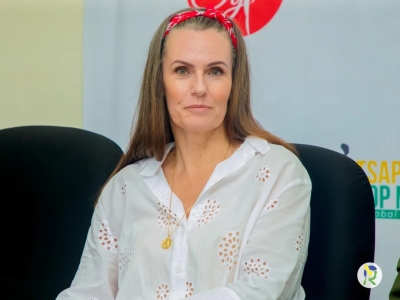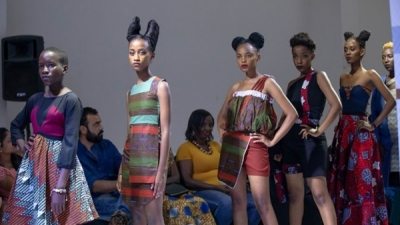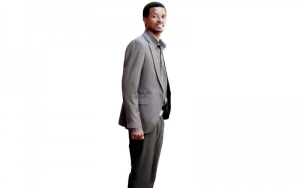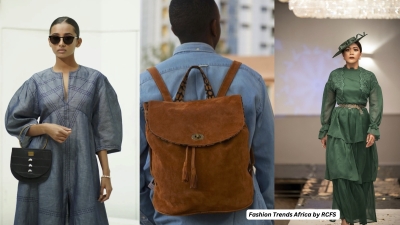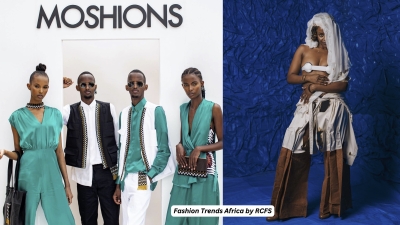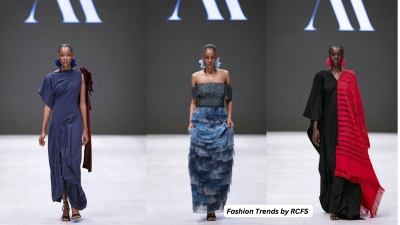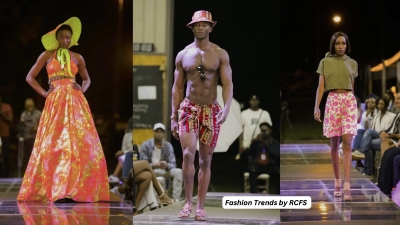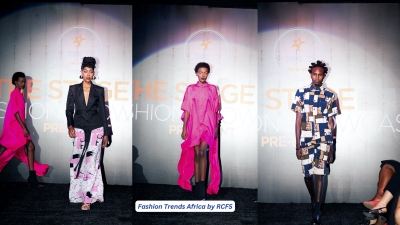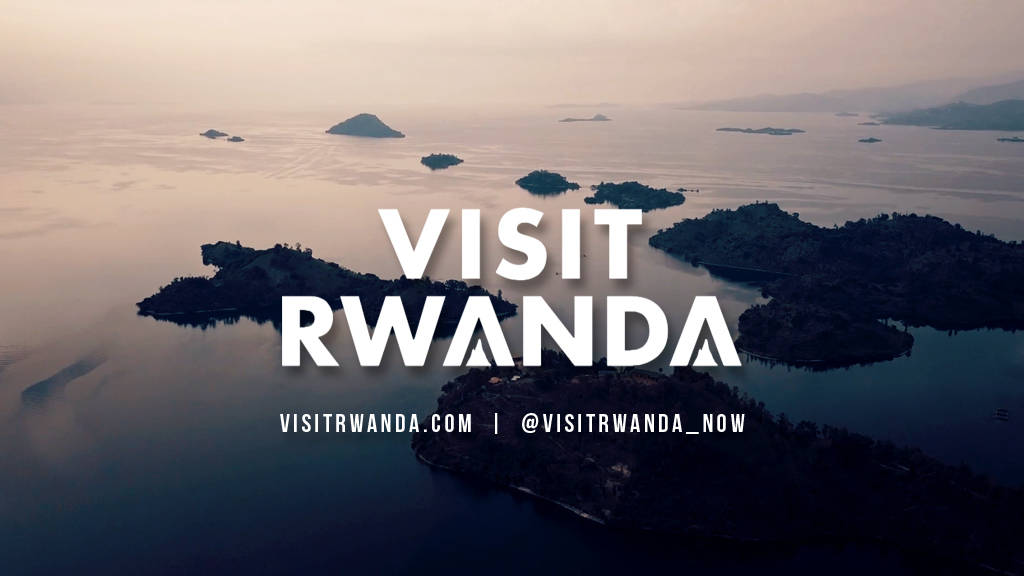9 Rwanda's Female Models Continue to Shine on International Fashion Stage 2024: Here's Why
In recent years, Rwanda's female models have been making waves on the international fashion scene, gracing runways from New York to Paris, Milan, and London. Their success raises intriguing questions: How have these Rwandan models managed to break into the competitive global fashion industry? And do they embody the spirit of Ndabaga, a legendary figure in Rwandan history known for her bravery and defiance of traditional gender roles?
The Rise of Rwandan Models on the Global Stage
The journey of Rwandan women in modeling is a relatively recent phenomenon, especially when viewed against the backdrop of the country's cultural history. Traditionally, Rwandan women were known for their beauty, secrecy, and responsibility in taking care of family and home. However, their roles were often limited, with certain jobs and activities considered off-limits.
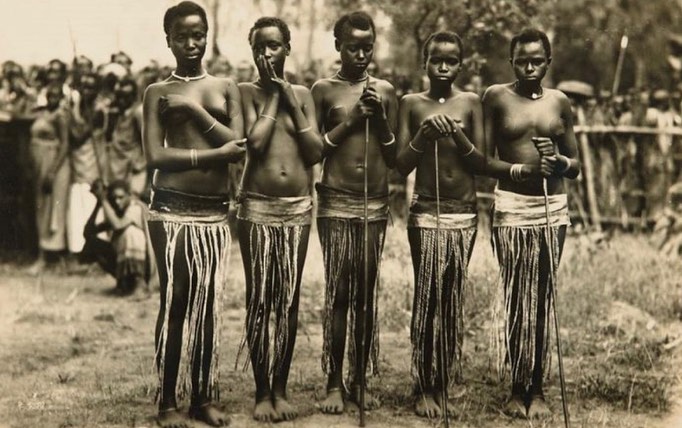 Rwanda's women earlier in 1880 [Photo Credit: MR]
Rwanda's women earlier in 1880 [Photo Credit: MR]
The 1994 Tutsi Genocide marked a turning point for women's roles in Rwandan society. In the aftermath, women played a crucial role in helping the country recover from this tragedy. Gradually, societal norms began to shift, allowing women to enter previously male-dominated fields, including modeling.
Initially, modeling was viewed with skepticism by many Rwandans, often dismissed as a frivolous or even disreputable profession. However, through the efforts of pioneering individuals and agencies, modeling has gained recognition and respect as a legitimate career path.
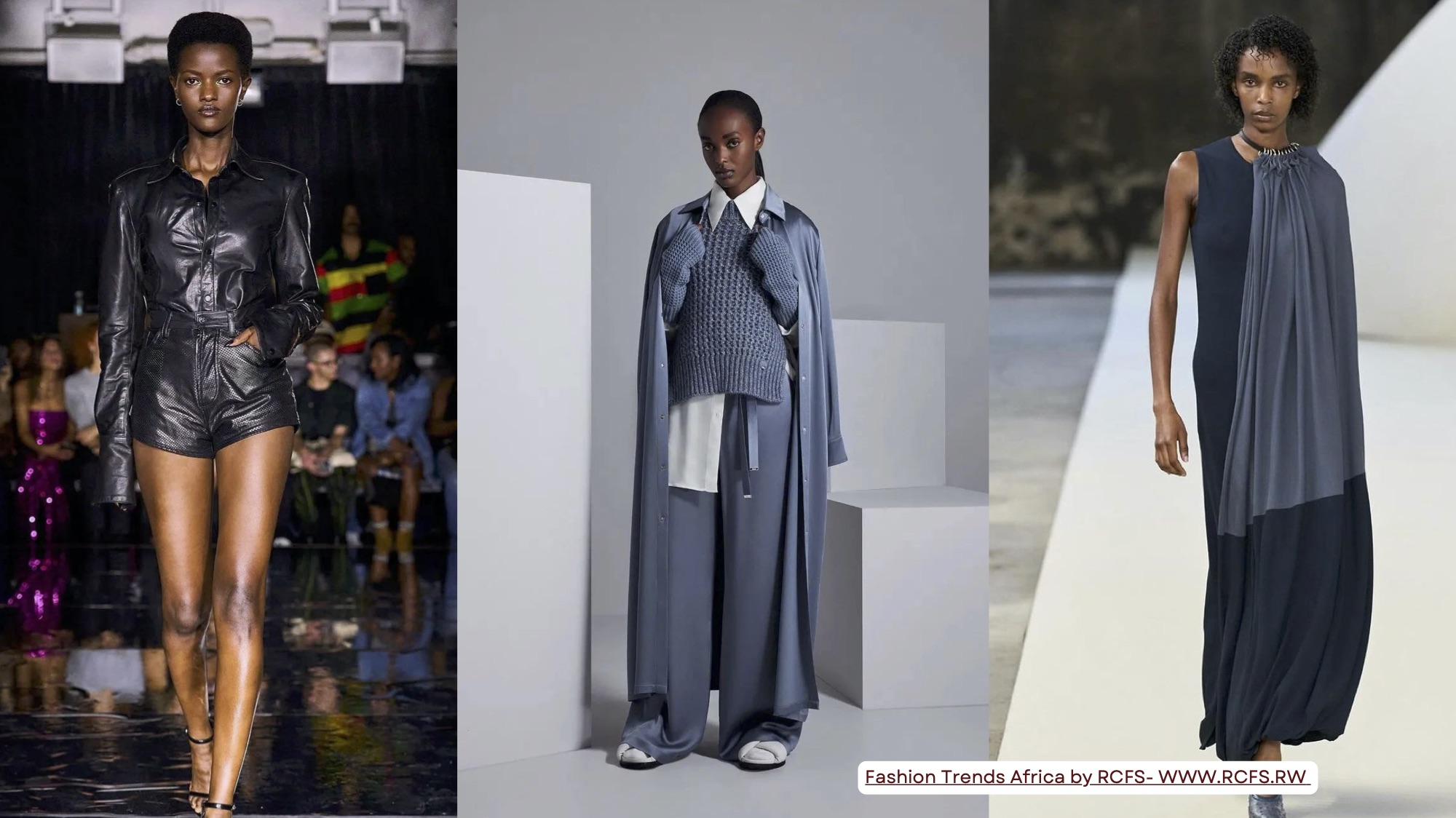 Models: Anifa Umufite, Isheja Morella, and Christine Munezero [Photo credit: IG Models]
Models: Anifa Umufite, Isheja Morella, and Christine Munezero [Photo credit: IG Models]
Spotlight on Rwanda's International Models
Let's take a closer look at some of the Rwandan models who have made their mark on the international fashion stage:
Anipha Umufite: Known professionally as Anipha Kay, she has walked for prestigious brands like Prada, Fendi, Dior, Hermes, and Dolce & Gabbana. In 2022, Umufite landed a deal with Kanye West's 'Yeezy Gap' collection and featured alongside supermodel Naomi Campbell. In May 2024, she appeared in Vogue Italia.
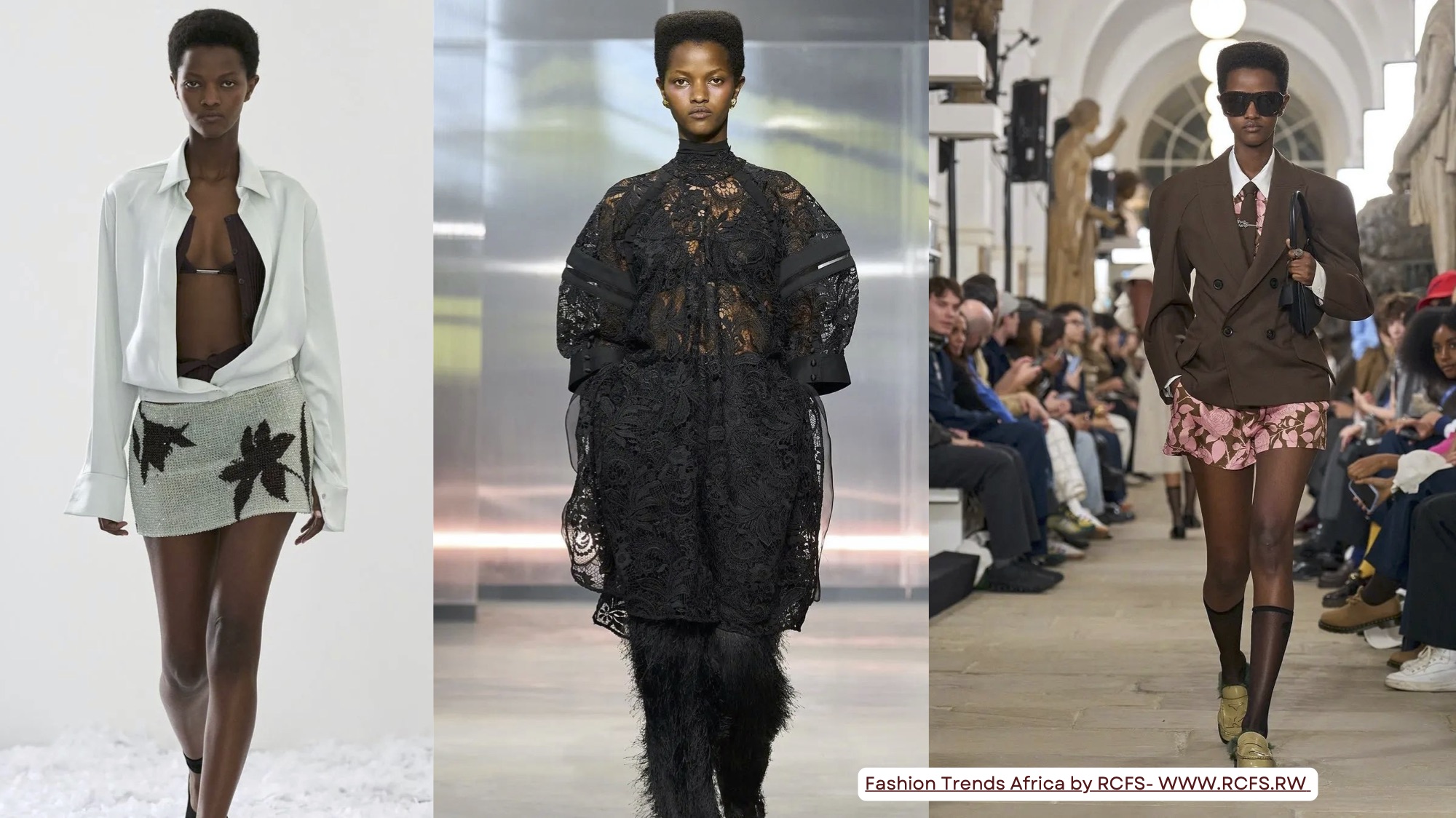
Mushikiwabo Denyse: She has showcased collections for Tommy Hilfiger, Balmain Paris, Victoria Beckham, Carven, Gucci, and Prada, among others. Mushikiwabo's talent has been recognized by agencies like The Wave, Select Models Paris, and Muse Model NYC.
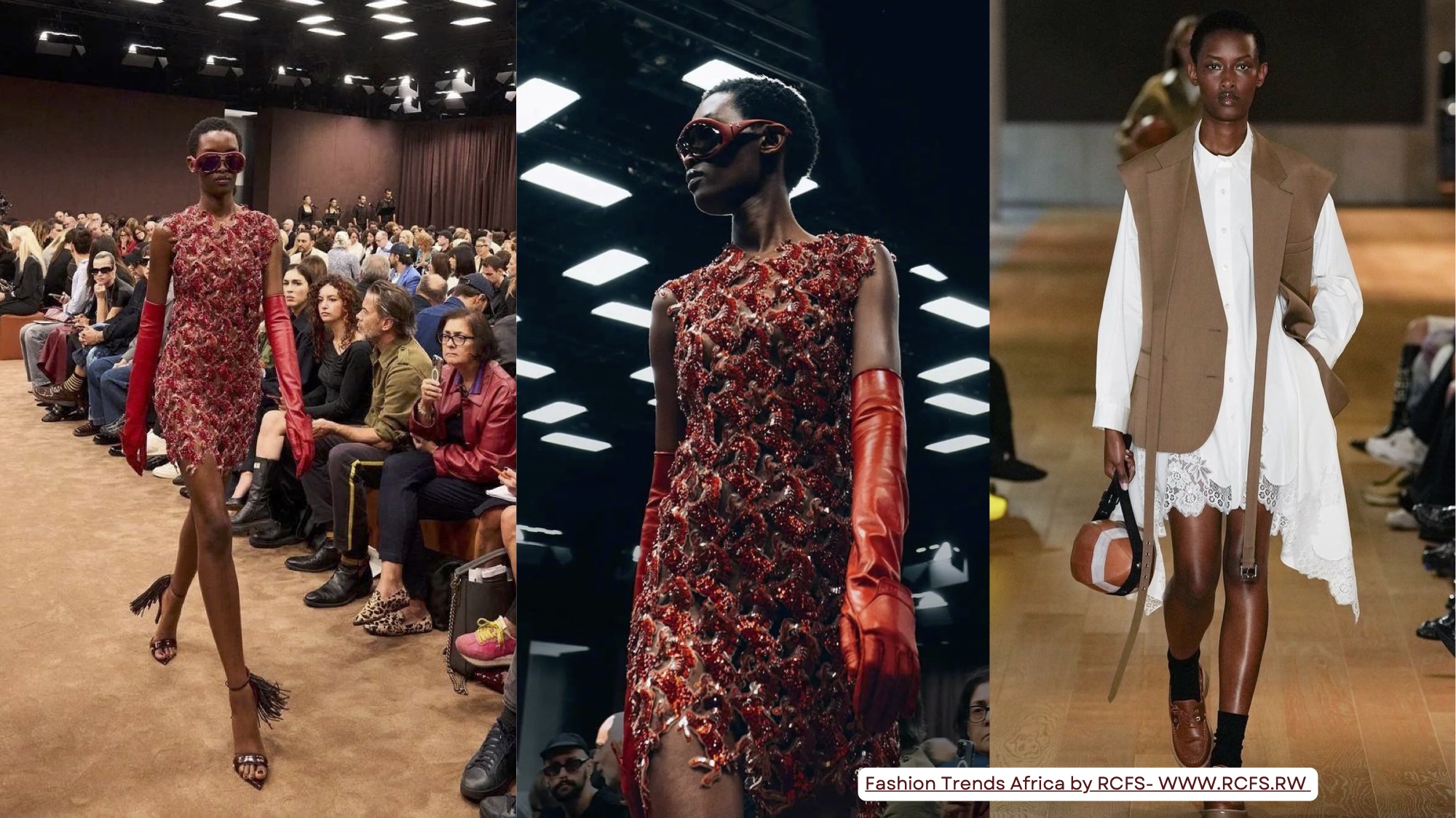
Christine Munezero: A regular at major fashion weeks in Milan, Paris, London, and New York, Munezero has worked with renowned brands such as Maison Valentino, Maison Margiela, Chloé, Dior, Versace, and Gucci.
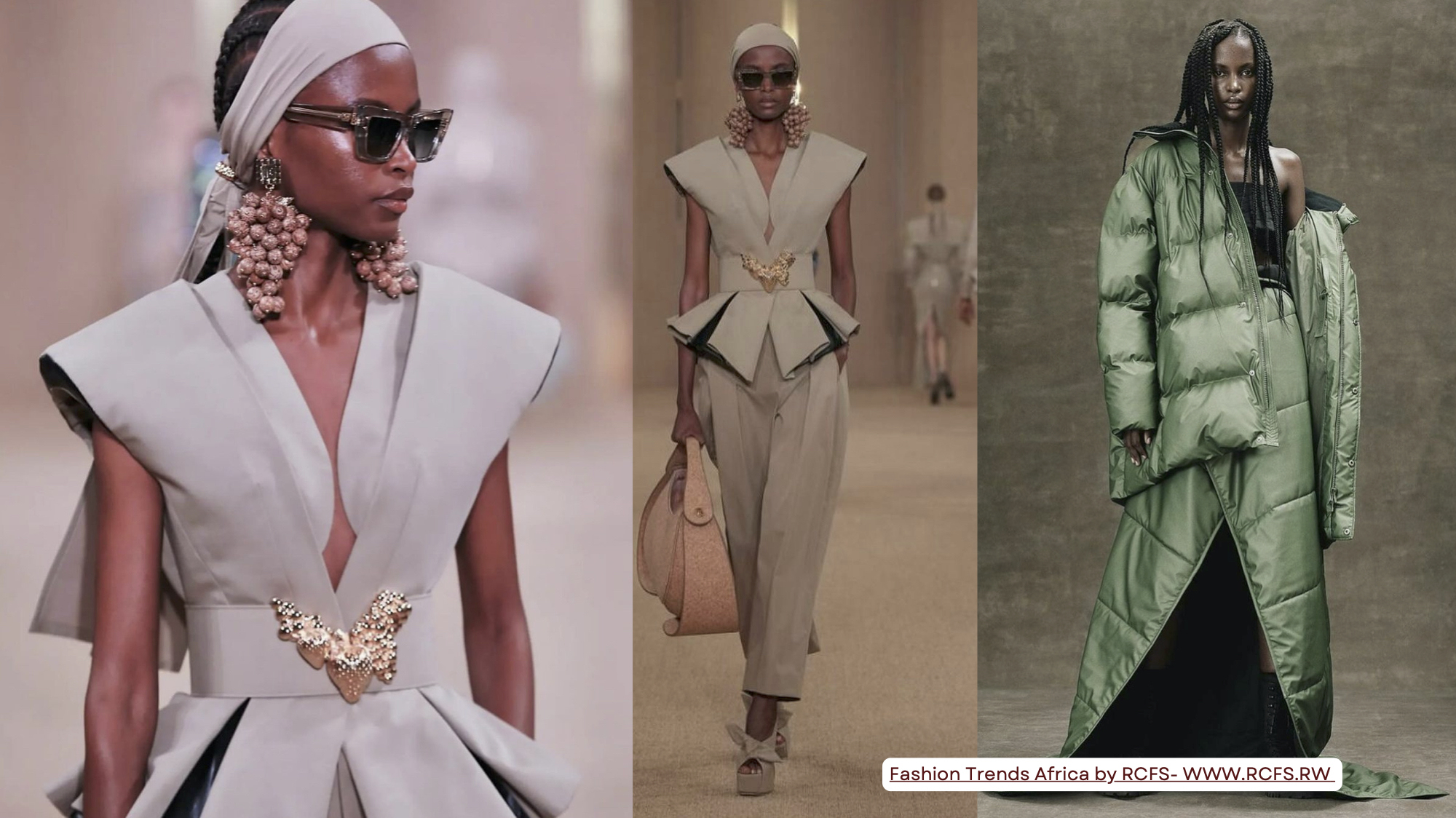
Umutoni Ornella: She presented designs for Loewe, Hermes, and MIU MIU at the Paris Fashion Week in February 2024. Umutoni is signed with agencies in the USA, Italy, France, Barcelona, and Greece.
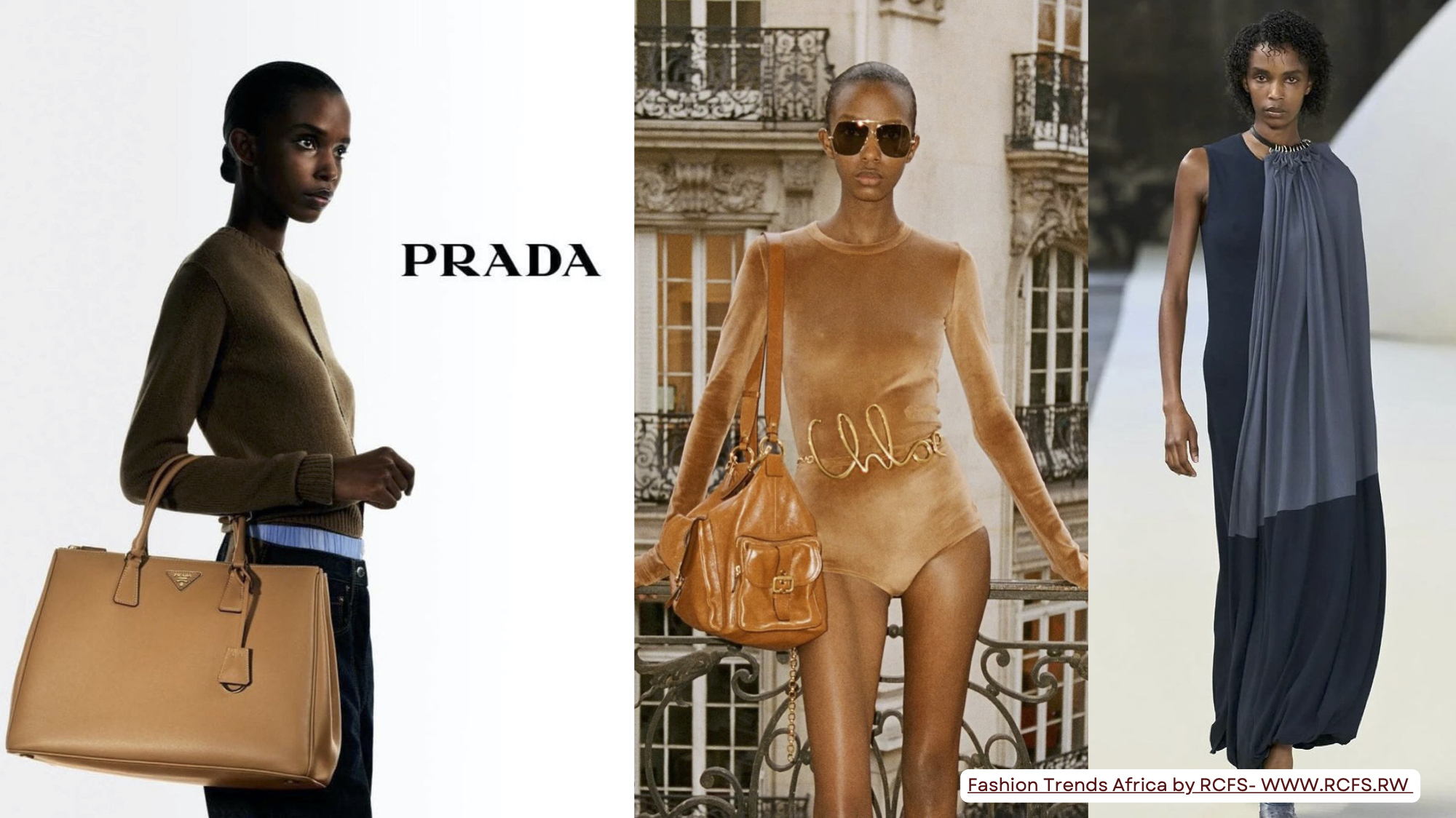
Esther Niyirera: Making her debut at Paris Fashion Week in early 2024, Niyirera has quickly risen to prominence, working with fashion brands from the UK, Italy, and France.
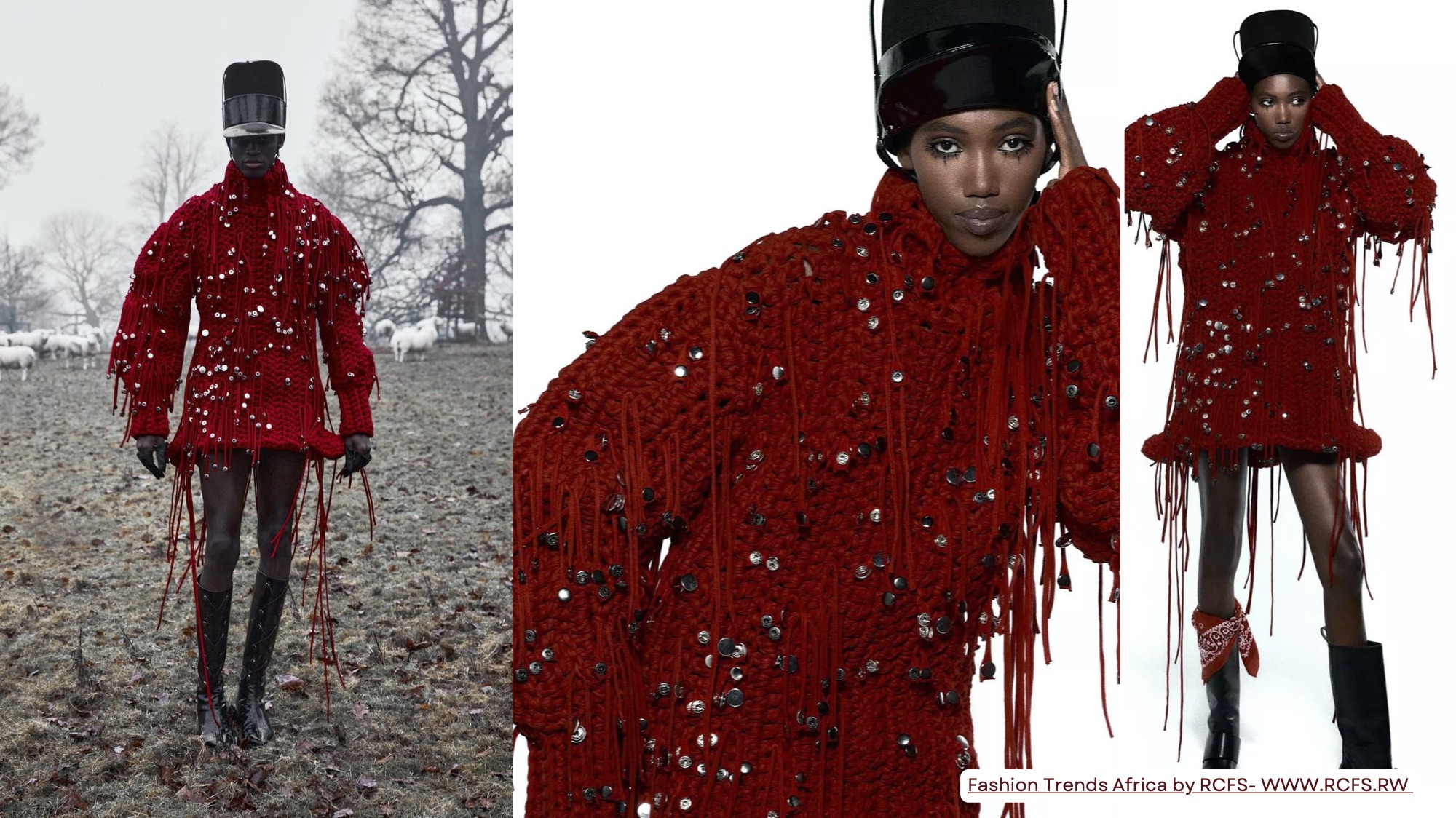
Jennifer Girukwishaka: Since her international debut in Paris in October 2021, Girukwishaka has become a familiar face on global fashion stages, represented by agencies in Italy, England, France, USA, and Spain.
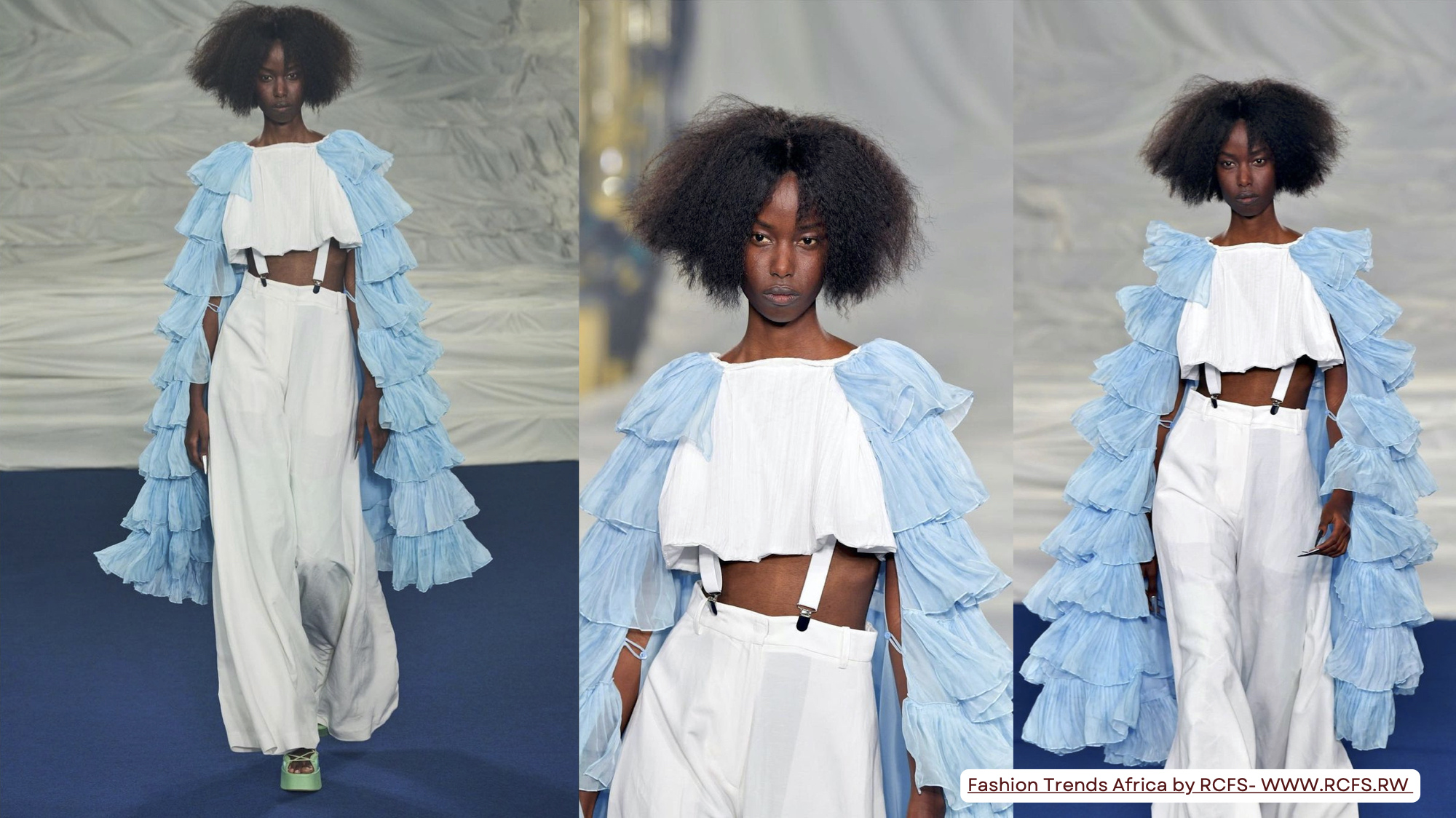
Ines Pamela: Pamela's journey began in 2021 with the help of 'We Best Models Management'. Pamela has since graced prestigious runways for Louis Vuitton, Balmain, Bottega Veneta, and Alexander McQueen.
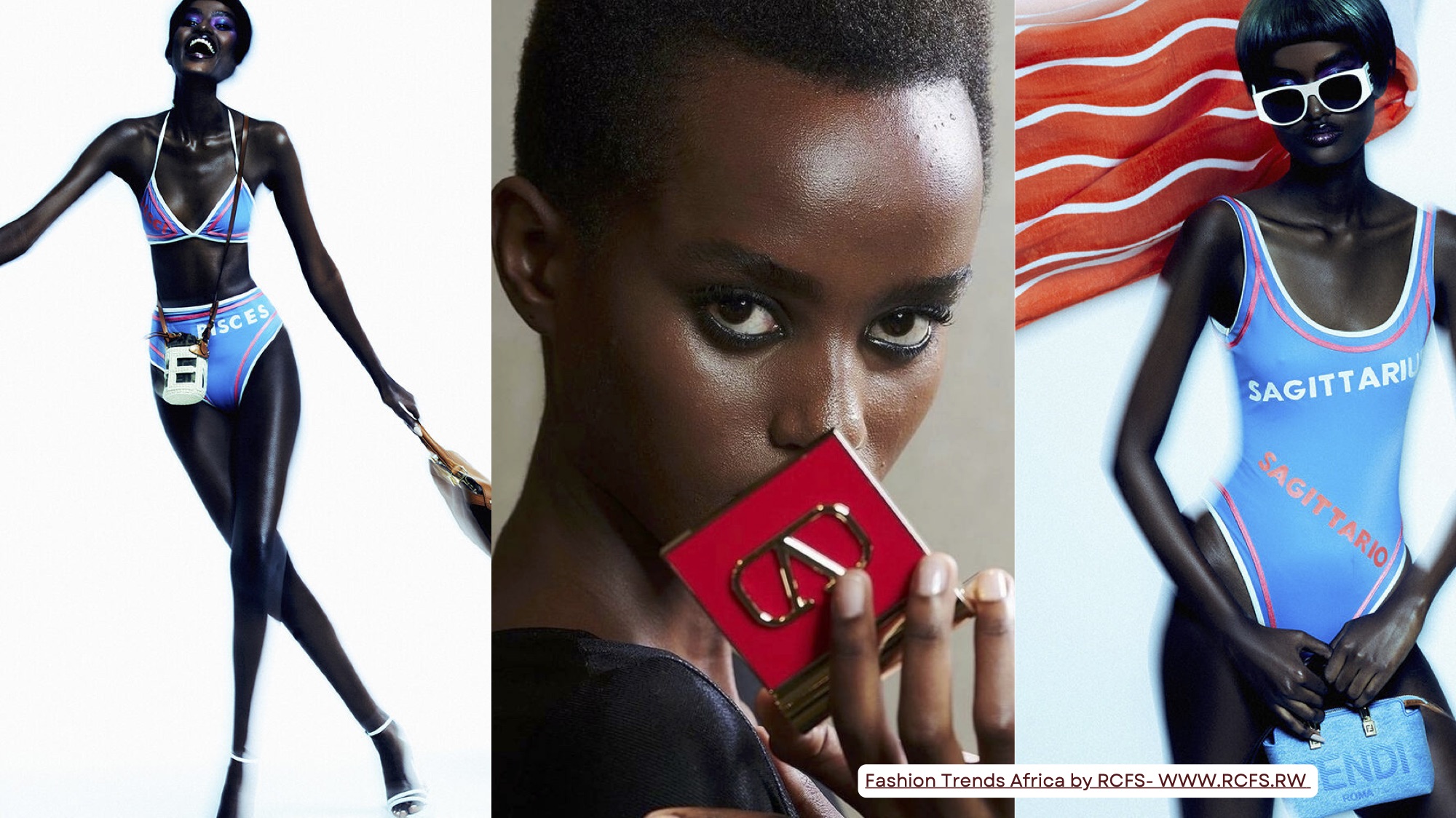
Morella Isheja: One of the youngest Rwandan models making waves internationally, Isheja has impressed at London Fashion Week and Paris Fashion Week, representing brands like Courreges and Giambattista Valli.
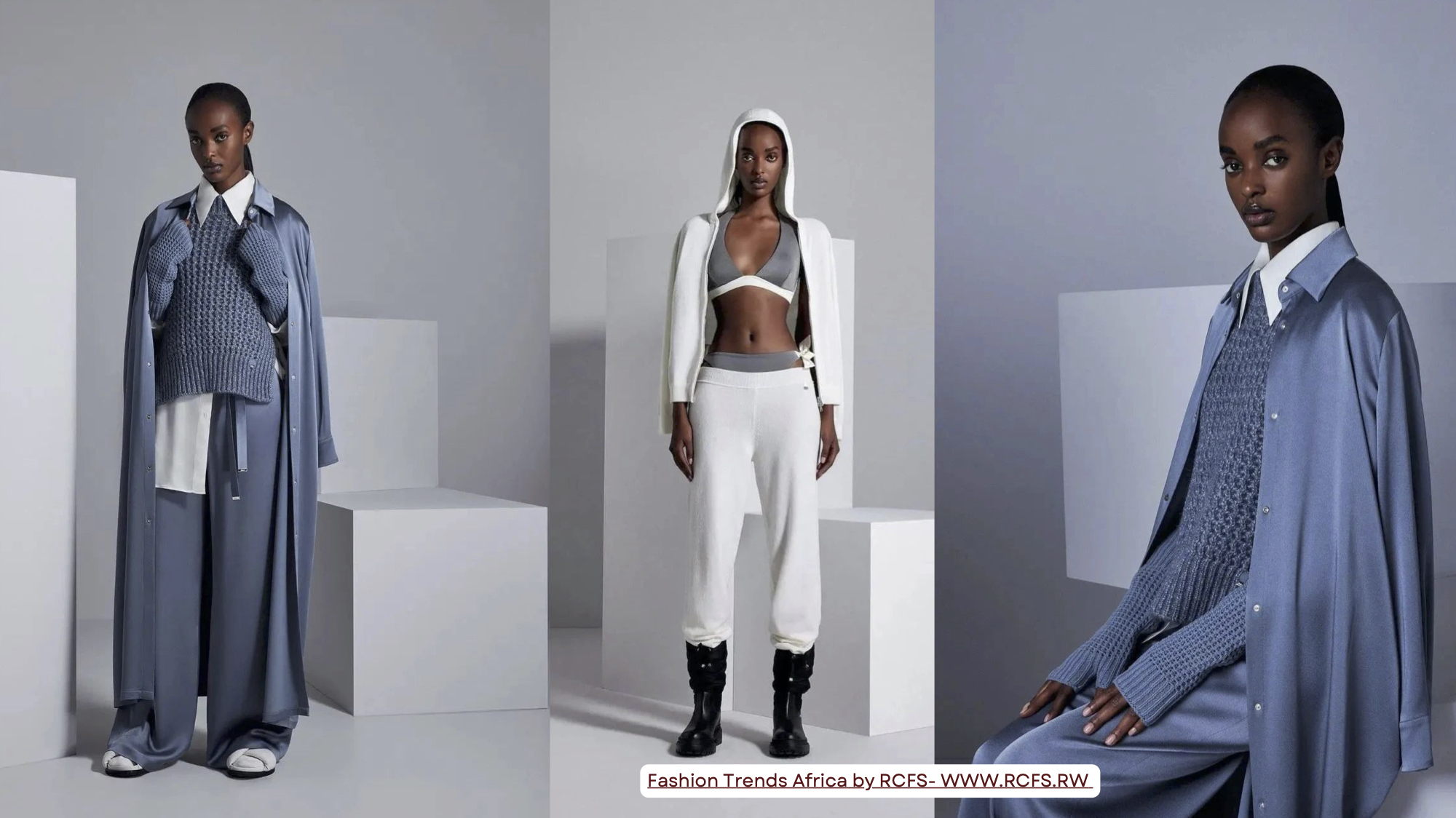
Kentha Kirezi: Isheja's sister, Kirezi, is part of the emerging talent in the fashion industry. She has walked alongside industry icons like Naomi Campbell and Winnie Harlow at London Fashion Week.
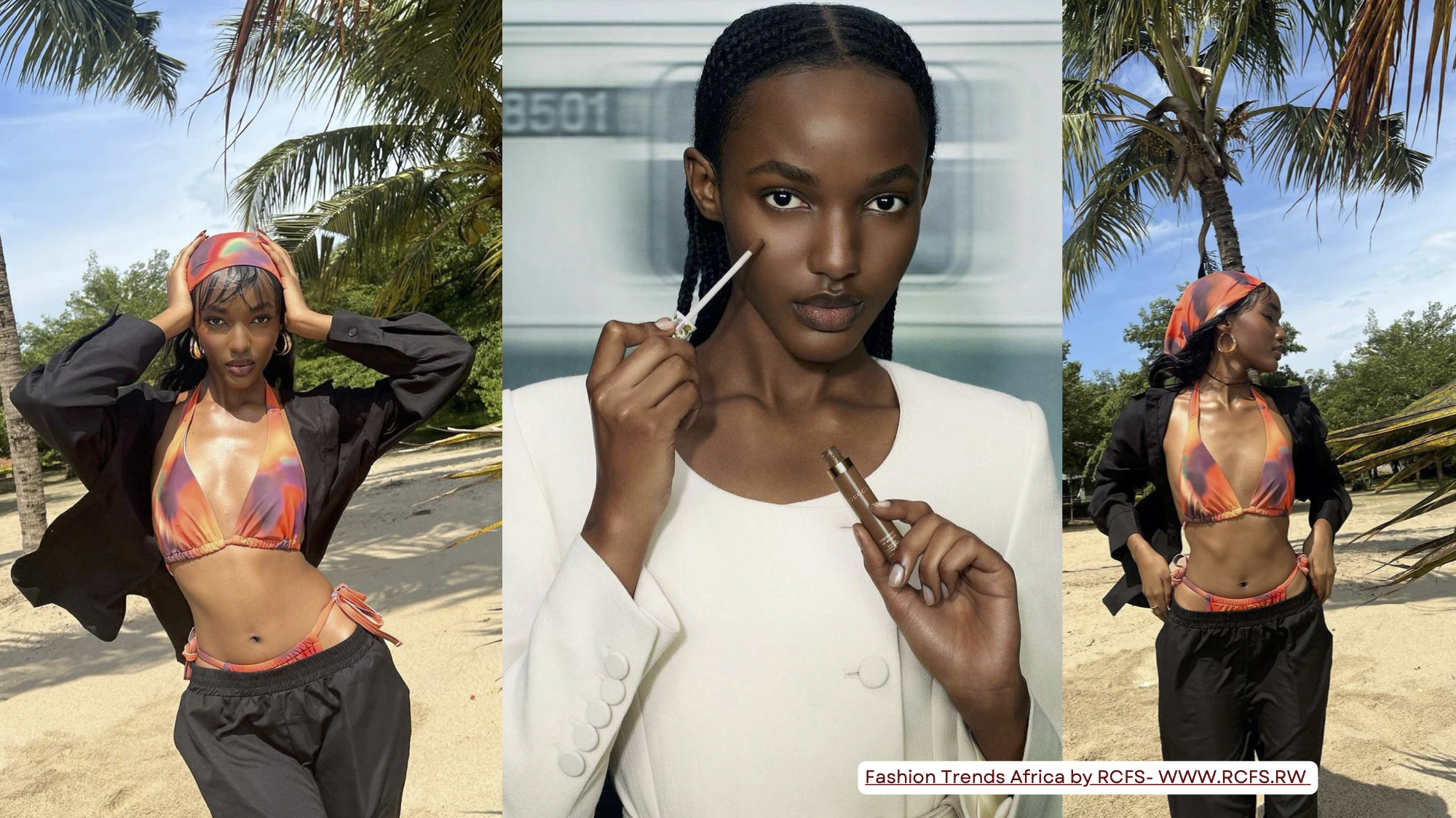
The Spirit of Ndabaga: Courage and Determination
The success of these Rwandan models on the international stage can be seen as a modern embodiment of the spirit of Ndabaga, a legendary figure in Rwandan history. Ndabaga's story is one of sacrifice, determination, and breaking gender barriers.
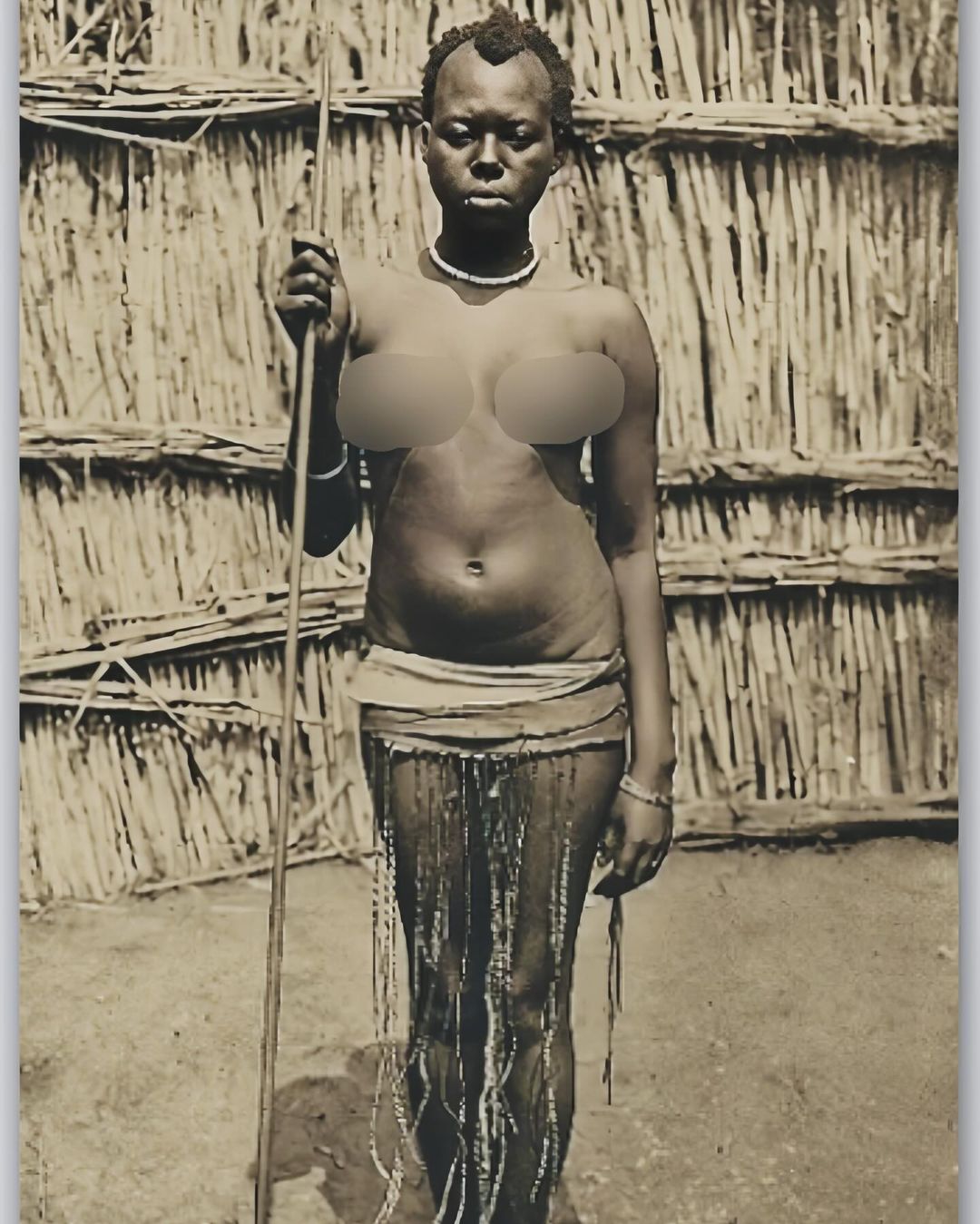 Rwanda's female holding a spear earlier in 1880 [Photo Credit: MR]
Rwanda's female holding a spear earlier in 1880 [Photo Credit: MR]
According to legend, Ndabaga was a young woman who disguised herself as a man to replace her father in the king's army, as there was no son to take his place. She trained rigorously in warrior skills and even went to the extreme of removing her breasts to maintain her disguise. Although eventually discovered, Ndabaga's bravery and skill impressed the king and led to changes in the military service system.
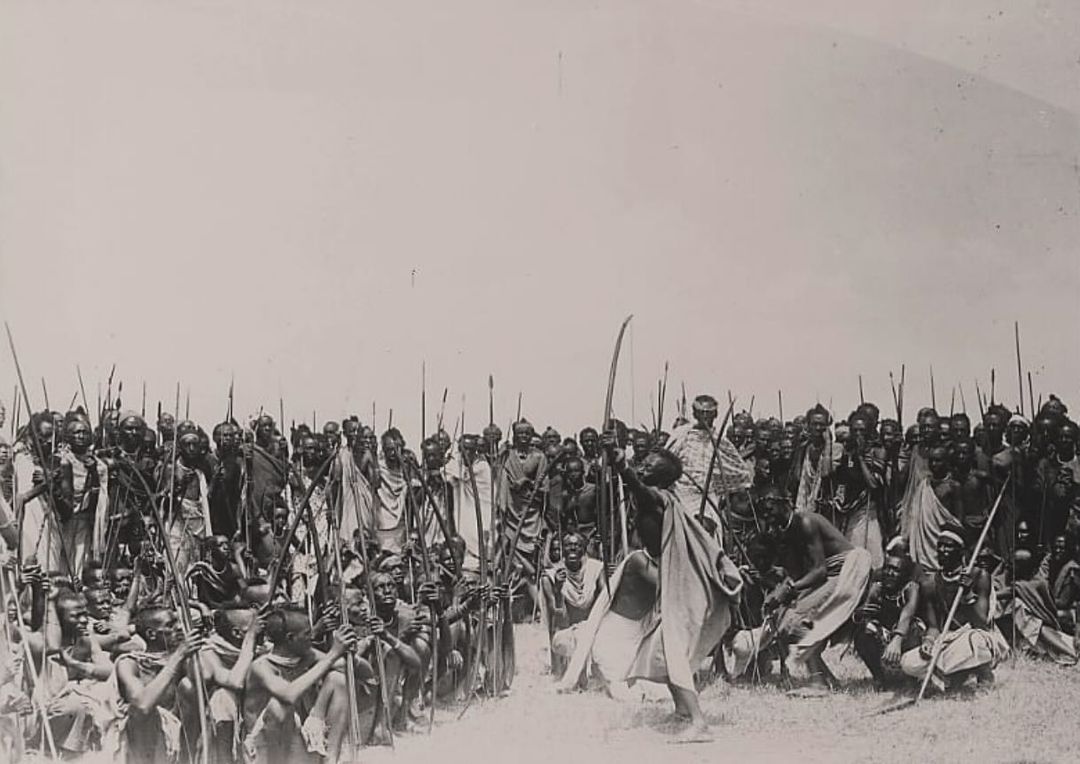 Rwanda's King Yuhi V Musinga and his warriors [Photo Credit: MR]
Rwanda's King Yuhi V Musinga and his warriors [Photo Credit: MR]
Like Ndabaga, these modern Rwandan models have shown incredible determination and courage in pursuing their dreams. They have overcome cultural barriers, skepticism, and fierce competition to make their mark in the global fashion industry. Their success challenges traditional notions of women's roles in Rwandan society and opens up new possibilities for future generations.
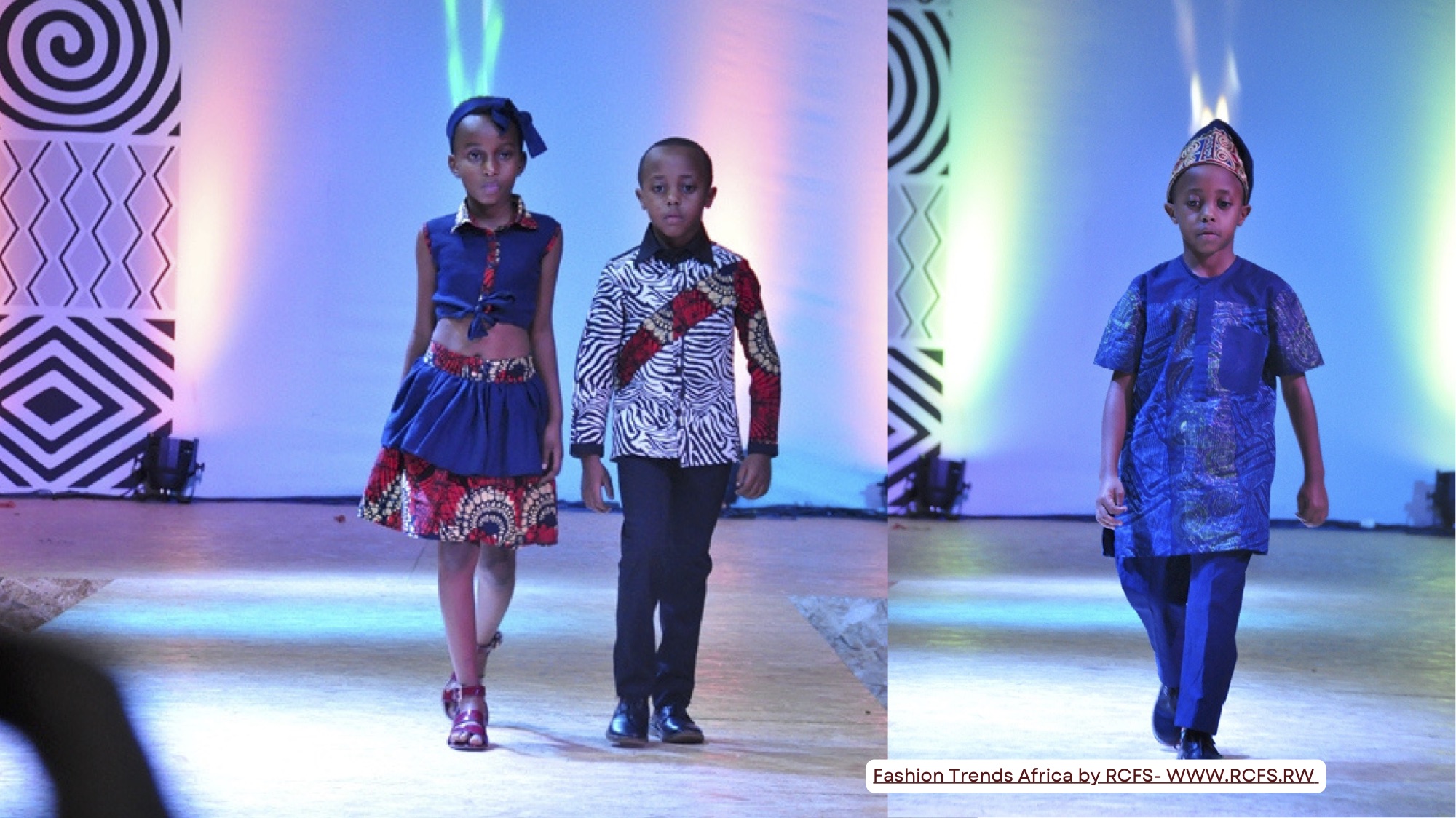 Kids on the runway in a fashion show in Kigali [Photo Credit: RCFS]
Kids on the runway in a fashion show in Kigali [Photo Credit: RCFS]
Factors Contributing to Rwand’s Models Success
Several factors have contributed to the success of Rwandan models on the international stage and these include; Natural Beauty and Unique Looks: Rwandan women are known for their striking features, which stand out in the diverse world of international fashion.
It also includes; Height and Physique: Many Rwandan women possess the tall, lean physique prized in the modeling industry, Cultural Shift: The changing attitudes towards women's roles in Rwandan society have opened up new opportunities in fields like modeling, Government Support: Rwanda's government has been supportive of initiatives that showcase the country's talent on the global stage.
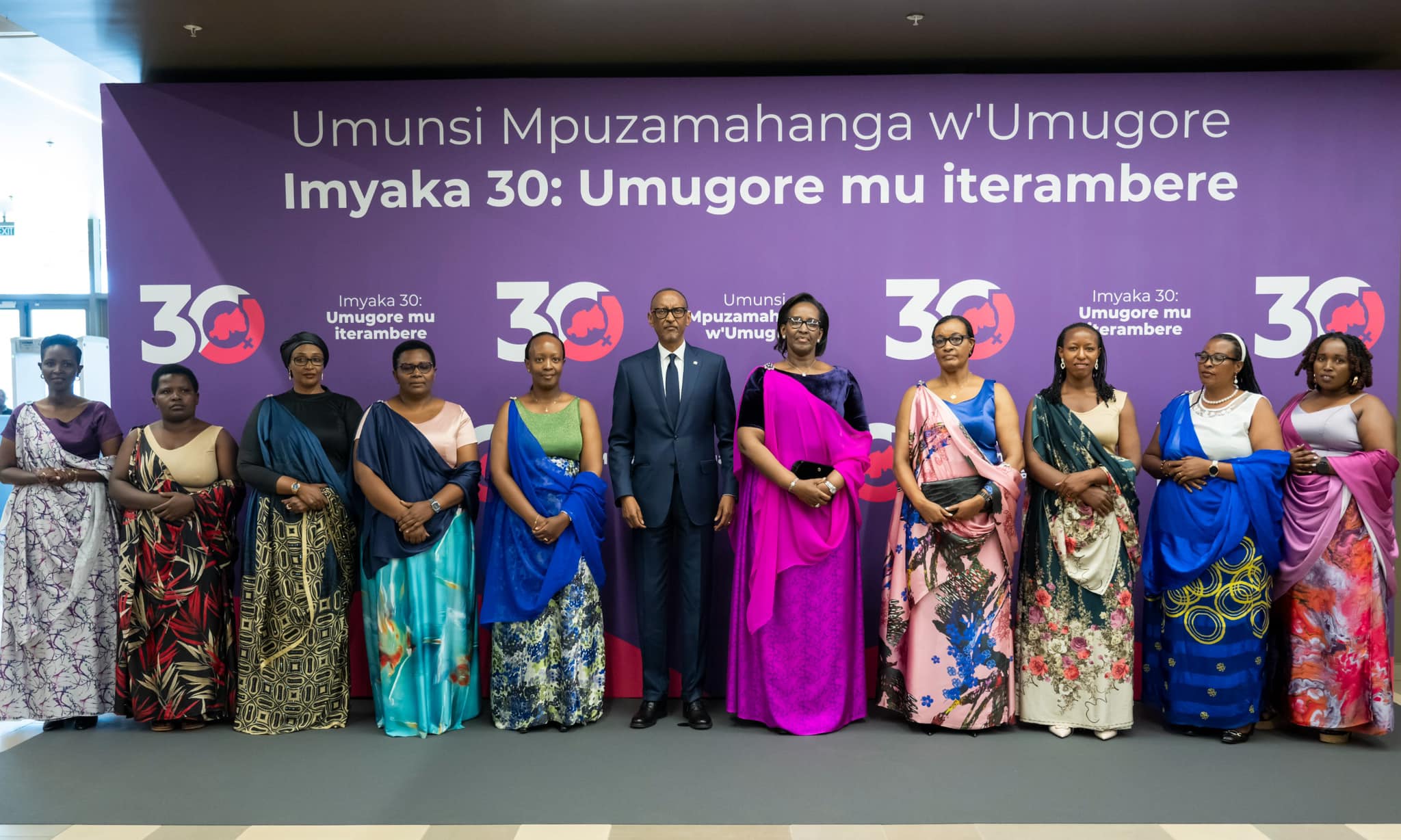 “Women are an important pillar of the development of our country,” President of Rwanda H.E Paul Kagame | International Women’s Day [Photo Credit: PO]
“Women are an important pillar of the development of our country,” President of Rwanda H.E Paul Kagame | International Women’s Day [Photo Credit: PO]
ALSO READ: Official Launch: What should models expect from the Rwanda Fashion Models Union?
There are other factors such as International Exposure: As Rwanda becomes more connected to the global community, opportunities for its models to be discovered by international agencies have increased, Persistence and Hard Work: The success stories of these models are marked by their dedication, resilience, and willingness to seize opportunities.
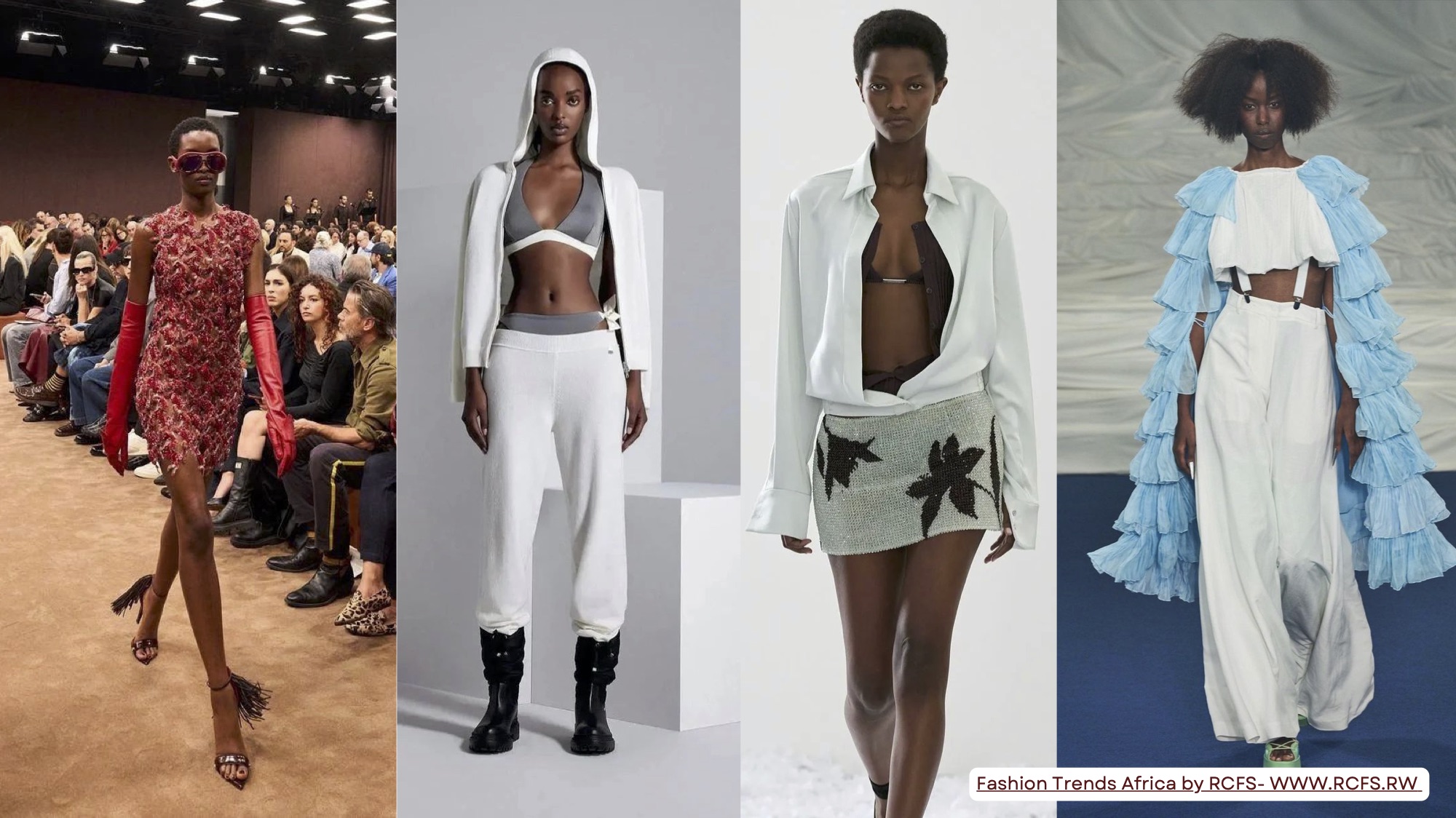 In the photo models: Denyse Mushikiwabo, Isheja Morella, Anifa Umufite, and Jennifer Girukwishaka [Photo credit: IG Models]
In the photo models: Denyse Mushikiwabo, Isheja Morella, Anifa Umufite, and Jennifer Girukwishaka [Photo credit: IG Models]
The rise of Rwandan models on the international fashion stage is a witness to the changing face of Rwanda and the determination of its women. Like Ndabaga of legend, these modern-day heroines have broken barriers and challenged societal norms. Their success not only brings recognition to Rwanda but also inspires future generations of Rwandan women to dream big and pursue their ambitions, regardless of the field.
How Ethiopia's Apparel Sector is Combatting AGOA Uncertainty: Fashion's Next Sourcing Hub
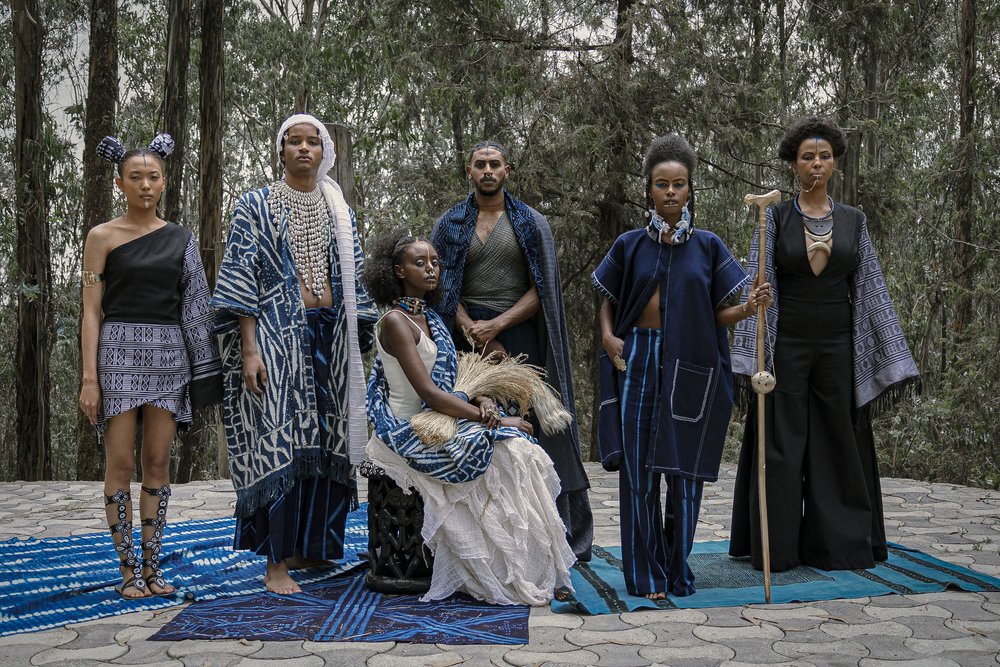
Made in Ethiopia collection by Afropian: A play on words between Ethiopian and African, Afropian is a lifestyle brand based in Addis Ababa that focuses on telling a story of African excellence, by Africans for the world. Though it is strongly centered on Ethiopia, it is a journey across the whole continent and its History.
During an exclusive side chat at Source Fashion in London, the president of Ethiopia's Hawassa Industrial Park Investors Association (HIPIA) Hibret Lemma, confesses Ethiopia is only just at the start of its shift away from relying solely on the US for its garment exports.
He admits losing AGOA was a big hit to the country's garment sector and it slowed down growth considerably. However, Ethiopia's garment suppliers were hopeful that AGOA would be reinstated by the end of 2022 and that hope continued again until the end of 2023.
The nation's apparel sector has now accepted the waiting game is set to continue, with even AGOA's existing members still waiting for the agreement to be extended beyond its 2025 expiry date.
Lemma states: "We're back to reality now so we’ve been looking at the Europe market for about a year but it’s still in the early stages." In fact, Lemma took part in a panel session at last summer's Source Fashion event where he explained why European fashion sourcing executives should consider tapping into Ethiopia's sourcing potential.
Ethiopia's main challenge since losing AGOA
In his one-on-one chat with Just Style, however, Lemma is much more frank about the challenges since losing AGOA. He notes the main problem for the Hawassa Industrial Park is that it was originally designed with the US fashion industry in mind.
It was built seven years ago with US fashion conglomerate PVH Corp as an anchor investor, so the factory lines were made for repetition and big volume orders. Ethiopia's manufacturers were not looking at other markets before the loss of AGOA so it meant cutting staff and employees having to go back to their rural homes.
Hawassa, which is still Ethiopia's biggest industrial garment factory park, had 4,500 employees at its peak. Since the end of the country's AGOA membership in 2022 this has dropped down to 3,000. For Lemma, losing staff due to war and economic issues was a major challenge and on top of that having less help from the government, due to it it having other priorities. He adds access to foreign currency has historically also been a problem, but that is getting better.
The silver lining is that most companies managed to stay at the park, despite some downscaling, but they are now looking for reasons to expand. Indeed, despite the loss of AGOA Lemma retorts proudly that only two companies have closed since 2021.
On the whole, Lemma believes the factories wanted to stay open, which shows the resilience and true long-term potential of Ethiopia's garment sector. Remarkably, some garment manufacturers are still working with the US market despite the extra costs of not having the AGOA advantage. Lemma suggests these companies have successfully mastered efficiencies such as discounts on transportation to make exporting to the US a profitable endeavour.
Arguably, the big lesson Ethiopia has learned after all this is not to rely on one market and one trade agreement, such as AGOA. It is the same lesson fashion retailers and brands learned during the COVID-19 pandemic when supply chain issues were rife. Diversification is key at both ends of the supply chain spectrum.
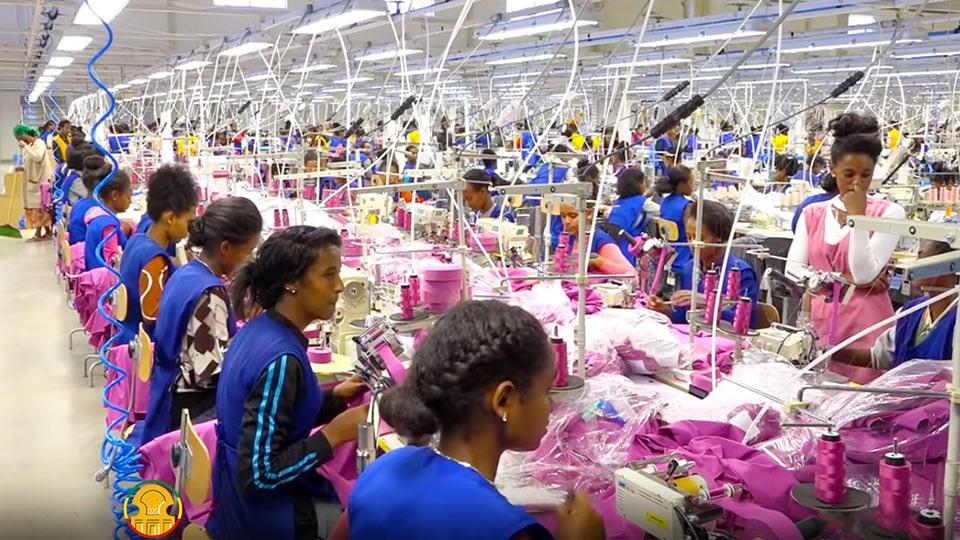
Ethiopian workers inside a clothing factory [PHOTO NT]
Pros and cons of exporting to Europe
There are still plenty of opportunities for Ethiopia's garment sector, however, Lemma accepts: "Adapting to the European market and fast fashion will require adjusting lines and having more agility, which takes time." He continues that styles and volume are different for European fashion brands and retailers so this is a challenge for its supply chain.
The French sporting brand Decathlon is namedropped as already sourcing from Ethiopia along with French department store Monoprix, which Lemma says shows the country does have some experience with the European market, but it's still at an infant stage from a scale point of view.
Just Style spoke to a number of Ethiopian garment suppliers while wandering around the responsible global fashion supplier trade show. Many of them were quick to cite Europe as their new target market. JP Textile Ethiopia's general manager Dick Sun noted that the UK announced duty-free benefits for Ethiopia last year, which is why he was keen to be at the London-based show.
However, Desta Garments PLC's general manager Eyob Bekele points out that Europe and the UK offer Ethiopia the same duty-free benefits as their Asian suppliers, so he views the likes of Bangladesh and Pakistan as real competition.
Bekele acknowledges that Ethiopia doesn’t have as much vertical sourcing, which makes it a challenge as Ethiopia has to buy materials from Asia, while also competing with the sourcing major continent on export price for its ready-made garments.
There is development in Ethiopia's cotton farms and companies are looking into backward integration in terms of developing the fabric, but it has to be sustainable, Bekele adds.
Lemma hopes verticality will be on the horizon for Ethiopia in the not too distant future. He stated: "We would love to see fabric mills and a ginning capacity. We also want our garment hub to be a leader in Africa. I hope in three or four years we will be a leader at least in sub-Saharan Africa".
For Bekele, sustainability is key as he points out that Europe in particular is looking for more sustainable options and higher quality fabrics. Plus, he agrees with Lemma that the US' consumer power is much bigger than Europe so his factory was not set up for the smaller volumes European brands and retailers are now requesting.
Demka Group's managing director Ayhan Demir explains his Turkish company opened an Ethiopia factory eight years ago. AGOA was a "big disappointment" and is the reason why his company has now "turned its face to Europe and the UK".
Demir shares UK retailers Matalan and Primark currently work with Demka Group's factory in Türkiye, but given the impact of the Red Sea crisis, he is hopeful the Ethiopia factory could become an attractive proposition for them moving forward.
Sumbiri Hela Intimate Apparel's general manager Ravi Jaya Thilaka also points out that Ethiopia is already producing highly technical garment products. He says his company has the first bra factory in East Africa which involves using high tech machinery. His factory has 3,000 employees and he is proud to say the workforce is trained and has a willingness to learn with potential for them to improve.
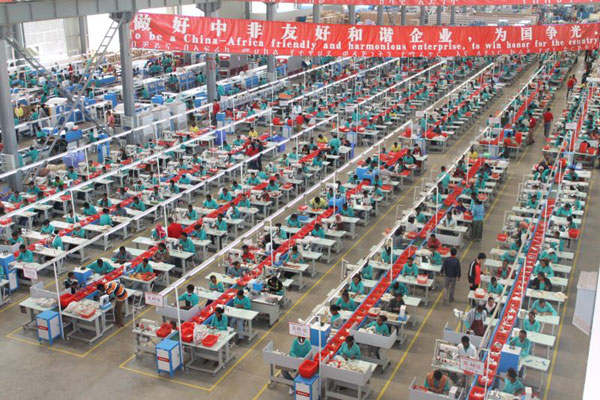
Ethiopian workers inside a clothing factory [PHOTO NT]
Will Africa be Ethiopia's next big opportunity?
Lemma describes Africa's consumer market as a real growth opportunity, but he notes you can't put a timeline on it as the free trade agreement for Ethiopia is not yet in operation. He is referring to the African Continental Free Trade Area Agreement (AfCFTA), which aims to create the largest free trade area in the world measured by the number of countries participating.
Ethiopia is yet to commence its trial but it is said to be making preparations with a view to diversifying its export products. Bekele believes that once the trade agreement is in operation the duty-free benefits will give Ethiopia a big opportunity. He notes volume is also substantial in Africa but affordability has to be a key part of any African consumer push.
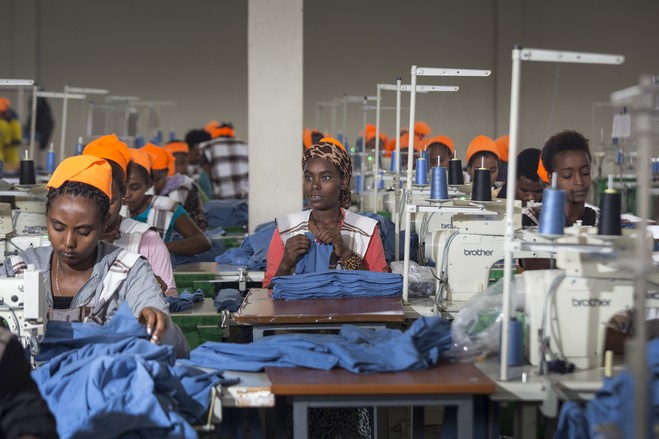
Ethiopian workers inside a clothing factory [PHOTO NT]
For Bekele, another arguably missed opportunity to date that would prevent both the amount of excess garment waste that enters the region as well as the chance to boost Ethiopia's sourcing potential locally is for global fashion brands and retailers to open stores in the continent.
Bekele believes there is demand for it as many Africans currently buy branded products when they travel to Europe so he asks: "Why are chains not opening in Africa?"
Hirdaramani Apparel's group marketing consultant Tharumal Wijesinghe agrees that Africa's potential is "huge".
He maintains it is beneficial for his multinational company to stay in Ethiopia as it gives European fashion brands and retailers the chance to expand their sourcing in the region for the time being. However, like so many of the other Ethiopian garment manufacturers exhibiting at Source Fashion, Wijesinghe has still got his fingers (and toes) crossed for AGOA and its huge US consumer market returning in the near future.
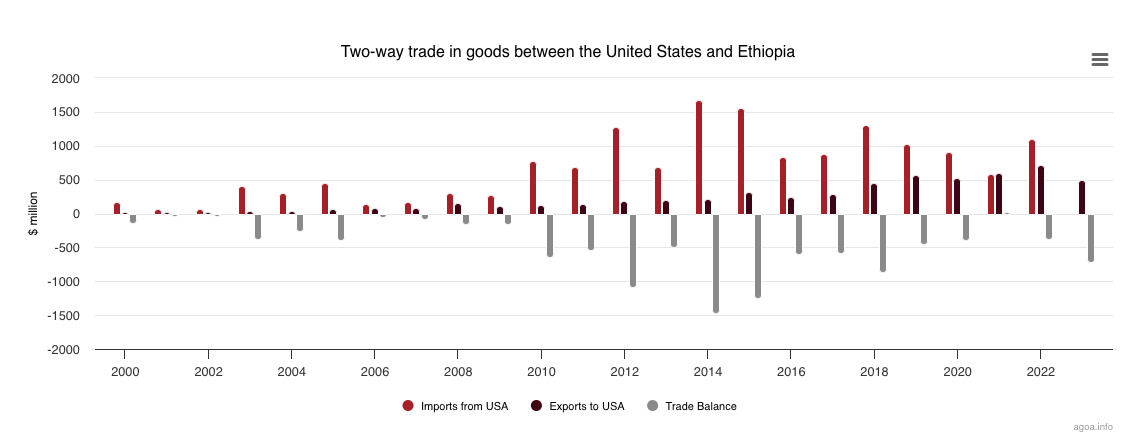
Article souce : GlobalData
International Model Eveline Gonzenbach to Boost Fashion and Modeling Industry in Rwanda
"I see a bright and promising future for the fashion industry in Rwanda. With a growing focus on local talent, sustainability, and embracing diverse voices, I envision a dynamic landscape where Rwandan fashion designers gain global recognition, and the industry becomes a hub of innovation, inclusivity, and conscious fashion choices" said the International Model Eveline Gonzenbach who is working with the Gorilla Fashion Week 2023
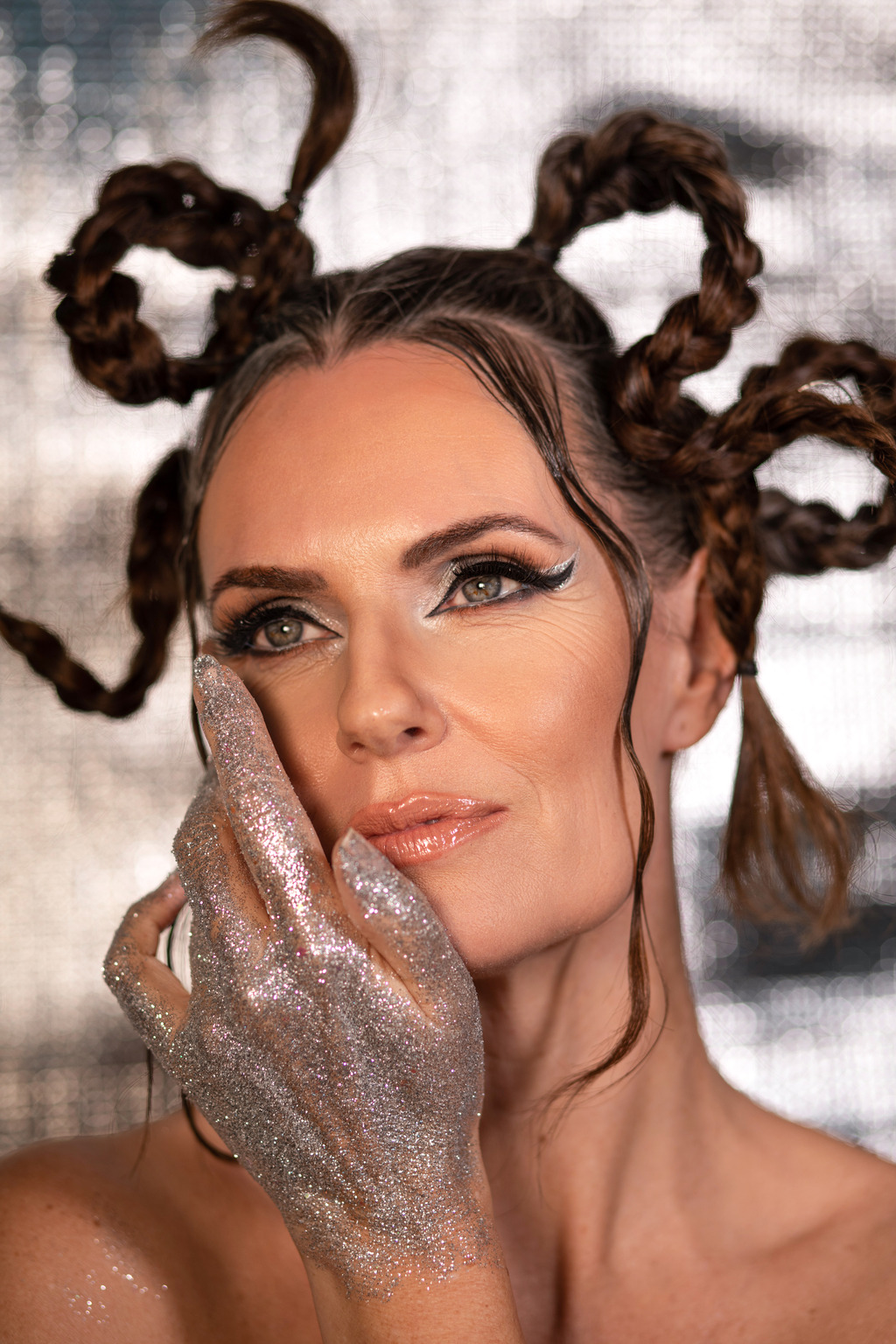 The international fashion, beauty, and lifestyle model Eveline Gonzenbach (Photo Eveline)
The international fashion, beauty, and lifestyle model Eveline Gonzenbach (Photo Eveline)
Fashion lovers in Kigali can’t wait to attend the Gorilla Fashion Week 2023. The event will bring together fashion enthusiasts to celebrate made in Rwanda and made in Africa to the world. The event which has started today, it will feature both young and upcoming local fashion designers as well as models.
The most important part of the Gorilla Fashion Week 2023 that brings curiosity to the fashion lovers around in Kigali, is the team and participants behind this event. Among them includes the international model Eveline Gonzenbach who is also among the guest speakers of Today's session that will take place at the IPRC Kigali.
“This is a great opportunity for the fashion industry in Rwanda to receive a professional international fashion, beauty, and lifestyle model like Ms Eveline Gonzenbach. I believe all those young and upcoming models will run a lot from her which will guide them for their future contracts” Placide Ngirinshuti told the RCFS’s Media.
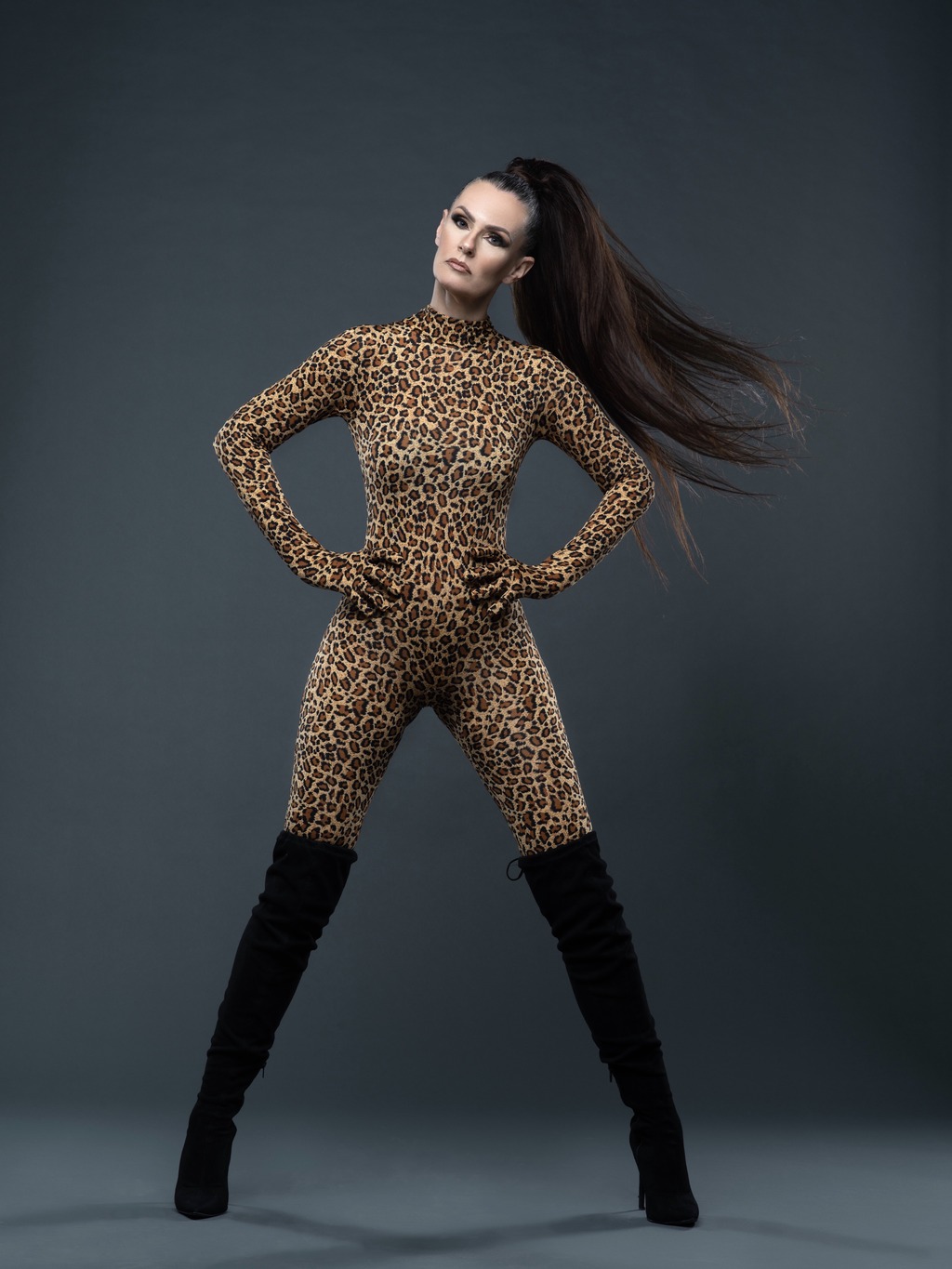 The international fashion, beauty, and lifestyle model Eveline Gonzenbach (Photo Eveline)
The international fashion, beauty, and lifestyle model Eveline Gonzenbach (Photo Eveline)
According to the information from the organizers of the Gorilla Fashion Week 2023, the international model will be part of their first edition scheduled this Saturday, 30 December at Century Park Hotel. During the interview with the RCFS's Media, we have asked Eveline Gonzenbach some questions about the fashion industry in general and what her expectations are from the Gorilla Fashion Week 2023.
Journalist: Can you share your fashion experience?
I started my modeling career in 2019 in Dubai. I am very proud to have worked for renowned brands such as Huda Beauty, Emirates Palace, La Marquise Jewelry, Ekadot Boutique, Moniritta Design, Park Hyatt and Grand Hyatt, and Neoque Magazine.
In summer 2022 I have been selected to join the famous Coco Rocha Model Camp in New York. Models of all age groups and origins intended to learn the secrets of modeling by Coco Rocha herself. This experience was something I did to expand my knowledge in modeling, but also to go out of my comfort zone, gain more confidence, and become a better version of myself.
Journalist: What are your expectations from the Gorilla Fashion Week 2023?
My expectations from the Gorilla Fashion Week are high, given the incredible talent and creativity that I have witnessed within the fashion community in Kigali.
My hope is that the event will not only inspire fashion enthusiasts but also contribute to the growth and recognition of Rwanda’s fashion industry on a global scale. I anticipate an atmosphere of creativity, collaboration and celebration of the unique spirit that defines fashion in Kigali.
Ultimately, I expect Gorilla Fashion Week to exceed expectations, leaving a lasting impact on both the local fashion scene and the broader industry.
Journalist: What is your role at the event?
As a model, I am the face behind the brand. The women/men who walk the runway have the power to inspire editors, buyers, and fashion lovers to covet a particular piece. My hope is to contribute to the success and vibrancy of Gorilla Fashion Week 2023.
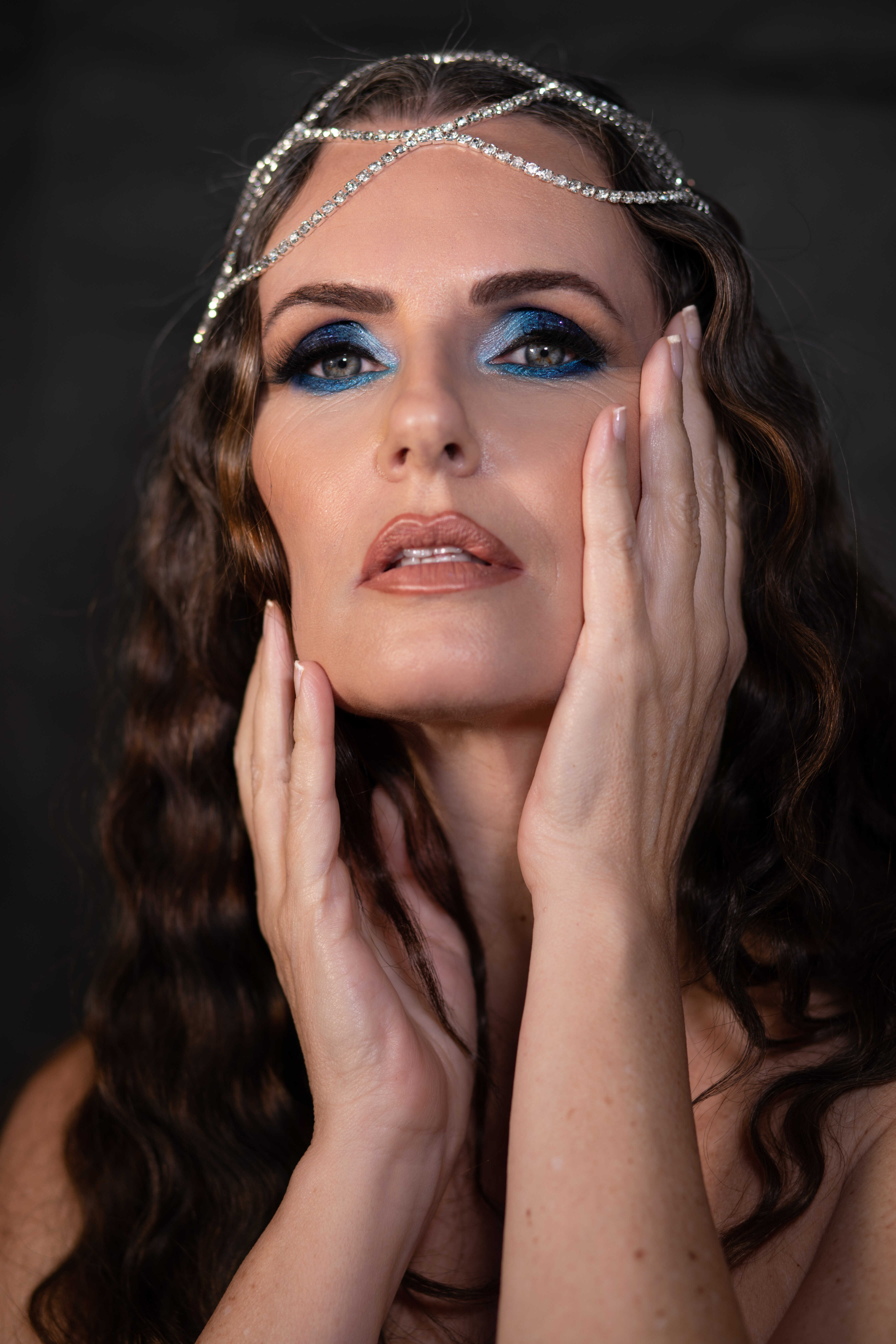 The international fashion, beauty, and lifestyle model Eveline Gonzenbach (Photo Eveline)
The international fashion, beauty, and lifestyle model Eveline Gonzenbach (Photo Eveline)
Journalist: Have you met local fashion designers and models?
Yes, I had the pleasure of collaborating with the talented designer from Umuheto Fashion House. Working closely with him was a remarkable experience that allowed me to immerse myself in their unique and inspiring designs.
Additionally, through various castings and runway trainings, I had the opportunity to connect and build relationships with a diverse array of models. These interactions have not only expanded my professional network but have also fostered a sense of camaraderie within the industry. It’s a testament to the collaborative spirit that defines events like Gorilla Fashion Week, where designers and models come together to create something truly extraordinary.
Journalist: What can you tell fashion lovers who want to buy tickets to attend the Gorilla Fashion Week 2023?
I would encourage fashion lovers to secure their tickets for Gorilla Fashion Week for an unforgettable experience. The event not only showcases designs and trends but also provides a platform to support local talent and sustainable fashion initiatives.
It’s not just a fashion show, it’s an opportunity to be part of a cultural movement shaping the future of fashion in Kigali and beyond.
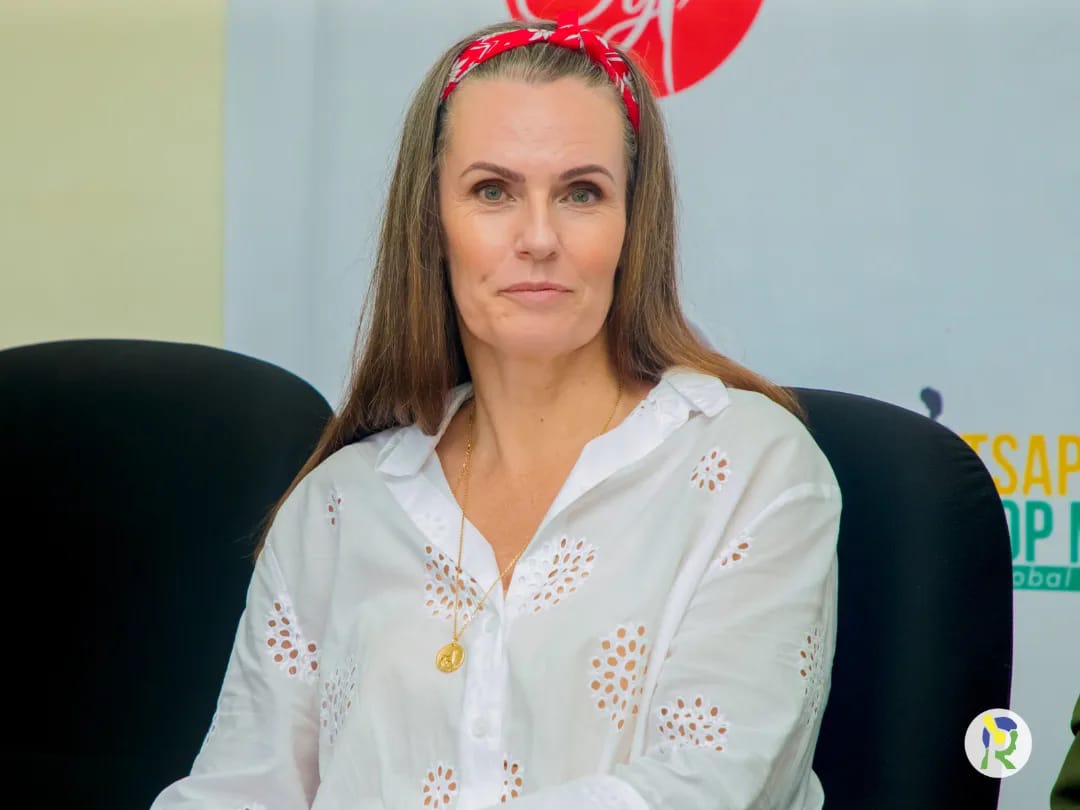 The international fashion, beauty, and lifestyle model Eveline Gonzenbach during the Gorilla Fashion Week 2023 press conference (Photo INYARWANDA)
The international fashion, beauty, and lifestyle model Eveline Gonzenbach during the Gorilla Fashion Week 2023 press conference (Photo INYARWANDA)
ALSO READ: TO SUPPORT UPCOMING FASHION DESIGNERS AND MODELS: GORILLA FASHION WEEK 2023
Journalist: Do you have a message to share with fashion lovers in Africa?
Absolutely! I would like to encourage all fashion lovers to embrace and celebrate the incredible diversity of styles and cultures across the continent. Africa’s fashion is more than just clothing; it’s a reflection of heritage, creativity, and innovation.
Let’s continue to support local designers, sustainable practices, and inclusive representations in fashion. Together we can amplify Africa’s influence on the global fashion stage and inspire a more diverse and vibrant industry for generations to come.
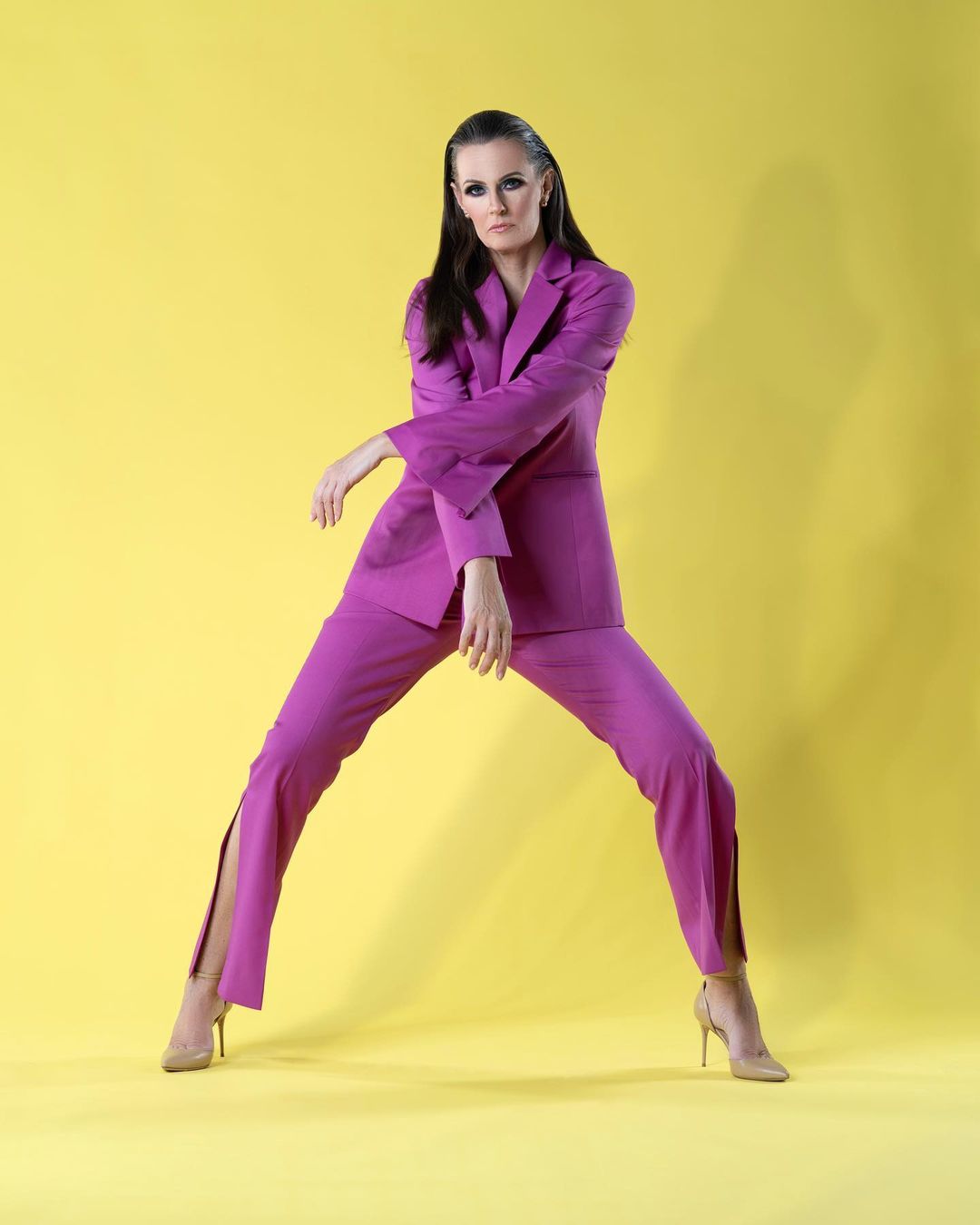 The international fashion, beauty, and lifestyle model Eveline Gonzenbach (Photo Eveline)
The international fashion, beauty, and lifestyle model Eveline Gonzenbach (Photo Eveline)
Stakeholders to discuss future of fashion industry in Africa
Models catwalking at a past fashion show. The webinar will discuss how to push the industry in Africa forward.
Rwanda Cultural Fashion Show (RCFS) will on December 18, hold a virtual conference during which players in the fashion industry will discuss the current state of the African fashion industry.
Dubbed “The Future of Fashion Industry in Africa”, the webinar will bring together different stakeholders of the fashion industry to share experiences and discuss how private and public institutions can support Africa’s growing fashion industry.
The webinar will include discussions which will be in the form of a series of a thought-provoking panel. Key speakers of the event will include renowned fashion designers, fashion promoters, experts in textiles and fabric dyeing, fashion school teachers and some government representatives.
Celestin Ntawirema, the brains behind RCFS and organiser of the webinar told The New Times that participants in this webinar will share experiences on how to establish a successful fashion concept business, discuss challenges facing the industry and propose some solutions.
“Though Covid-19 halted most activities in the industry, we thought of creating a platform that will bring players in the fashion industry to share experiences and best practices so we can learn from each other how best we can push our fashion industry to another level. We also want to see how designers can go global through African networks,” Ntawirema said.
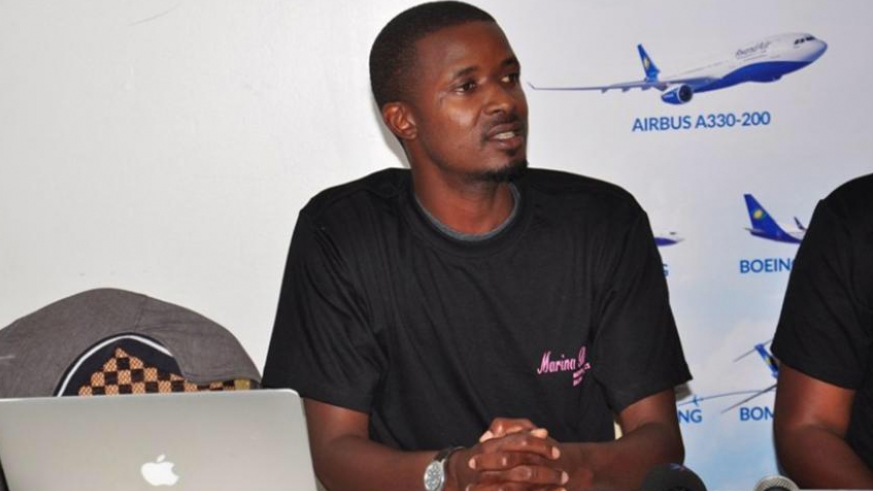 Celestin Ntawirema, the CEO of Rwanda Cultural Fashion Show. / Courtesy.
Celestin Ntawirema, the CEO of Rwanda Cultural Fashion Show. / Courtesy.
The African fashion sector is already impressing in the global market, something that industry players hail as a motivation despite the challenges they have faced in the journey.
Ntawirema, who has been promoting fashion for over the past eight years said that, from his experience, many brands from all over the continent had established themselves among the best globally and are now selling big on the international fashion markets compared to Western fashion despite having few fashion schools that can drive the industry to greater heights.
He, however, lamented that investors are still reluctant to put their money in fashion-related projects because protection of fashion copyrights and fashion innovations is still low due to the gap in fashion literacy.
The webinar, he said, will be an opportunity for fashion players to show both the public and private sectors the potential that fashion has at its disposal so as to attract their investment and, on the other hand, call for support from the governments to create a conducive environment for fashion to flourish and become a sector which can contribute to the national economic development.
 A model shows up before the audience during a past event. / File.
A model shows up before the audience during a past event. / File.
Some of the speakers expected for the webinar include Ruth Jackob, senior lecturer in fashion marketing Eastern London, Karen Uwera, the President of Rwanda Designers Association, John Bunyeshuri, the CEO and Founder of Kigali Fashion Week and Kenyan fashion guru Vinn Clizz, the Managing Director of Vinn Clizz among others.
Challenges
Though Rwanda’s fashion industry is being contextualized with the ‘Made in Rwanda’ policy but Ntawirema said that it’s a shame that One of the biggest challenges we have is that we have no fashion school that can prepare and raise future designers, models, or fashion promoters by profession.
“This is all down to the fact that Rwanda has no forum bringing together designers, models, promoters and other stakeholders to discuss to the future of this industry. We also need an umbrella or a fashion watchdog for all players in the fashion industry to ensure that the protection of our works is guaranteed,”
Rwanda may have local designers who are becoming successful but under hard conditions which the webinar is also looking forward to tackling.
The webinar outcomes are expected to respond to questions raised around African fashion industry from “who can design?”, “who can sell locally-made clothes”, and “who promotes fashion?” or even “who can basically support fashion sector?”
“We hope the webinar will find share responses to these questions together with the speakers. We also value new ideas from the public from which the future styling and fashion business in Africa can rely on,” he added.
This email address is being protected from spambots. You need JavaScript enabled to view it.
White Shoes Are Not For Everyone - Ntawirema
Celestin Best Ntawirema is the CEO of Rwanda Culture Fashion Show and founder of film house IRIS-Pro 1000 Hills Ltd. His goal is to support artistry and culture through dance, music, fashion and film. He spoke to Society Magazine’s Stephen Kalimba about his sense of style.
How would you describe your style?
I am fun and fashionable; not too many colours. I want my outfits to match. With a job like mine, you have to look good. I like suits too; my friends ask me questions when they do not find me wearing one.
Do you have a designer?
I work with many designers, so I try out some of the stuff they do. I also have tailors who make suits and they are very good, like Joseline Umutoni near Sky Hotel Remera.
What’s your take on white shoes? Some people wear them with suits?
They are not for everybody or every day, if you’re going to the stage or on screen, maybe.But elsewhere? Not really. Even our roads are too dusty for them.
Second hand vs. new clothes?
I don’t go for second hand clothes. I used to but now, for the sake of my credibility I don’t.
What are your kind of accessories?
I like watches, especially sports and metal watches like Caico and Shades. Watches are good for time saving, you might have a phone but when you’re seated on a moto or in a crowded place, all you need is to look at your watch.
Who influenced your venture into fashion?
My dad. He liked to wear Kitenge and African jewellery like that of the Maasai.
What should people avoid in fashion?
There are clothes that come from China that look nice when you first see them but fade in no time.
Any fashion advice?
When you’re smart you can relax and have a peace of mind, especially around people. Keep your clothes in good condition;do not over wash or iron them. Also, do not leave them with someone else to take care of, they might mess them up instead.
This email address is being protected from spambots. You need JavaScript enabled to view it.
LATEST NEWS
One week to go until Africa Sourcing and Fashion Week 2024: Designers, Exhibitors, and Speakers
01 November 2024 282 hitsOne week to go until Africa Sourcing and Fashion Week 2024: Designers, Exhibitors, and Speakers The countdown has begun for…
9 Years Milestone: Moses Turahirwa and His Moshions Brand Rwanda-Based
25 October 2024 434 hits9 Years Milestone: Moses Turahirwa and His Moshions Brand Rwanda-Based Over the past decade, Rwanda's fashion industry has emerged as…
What to Expect in Lagos Heineken Fashion Week 2024: Runways Kick off Today
23 October 2024 538 hitsWhat to Expect in Lagos Heineken Fashion Week 2024: Runways Kick Off Today The prestigious Heineken Lagos Fashion Week (LagosFW),…
Storytelling Meets High Fashion at The Kenya Fashion Story 2024
23 October 2024 625 hitsStorytelling Meets High Fashion at The Kenya Fashion Story 2024 The convergence of narrative and haute couture takes center stage…
Why Former Model Franco Kabano Is Backing the Stage Fashion Showcase's Founder
23 October 2024 537 hitsWhy Former Model Franco Kabano Is Backing the Stage Fashion Showcase's Founder In Rwanda's fashion industry, Franco Kabano and Sandrine…
The Stage Fashion Showcase 2024 Pre-Event Highlights Emerging and Established Talents: Main Event Set for November 1
20 October 2024 515 hitsThe Stage Fashion Showcase 2024 Pre-Event Highlights Emerging and Established Talents: Main Event Set for November 1 The fashion scene…
FASHION SHOPS
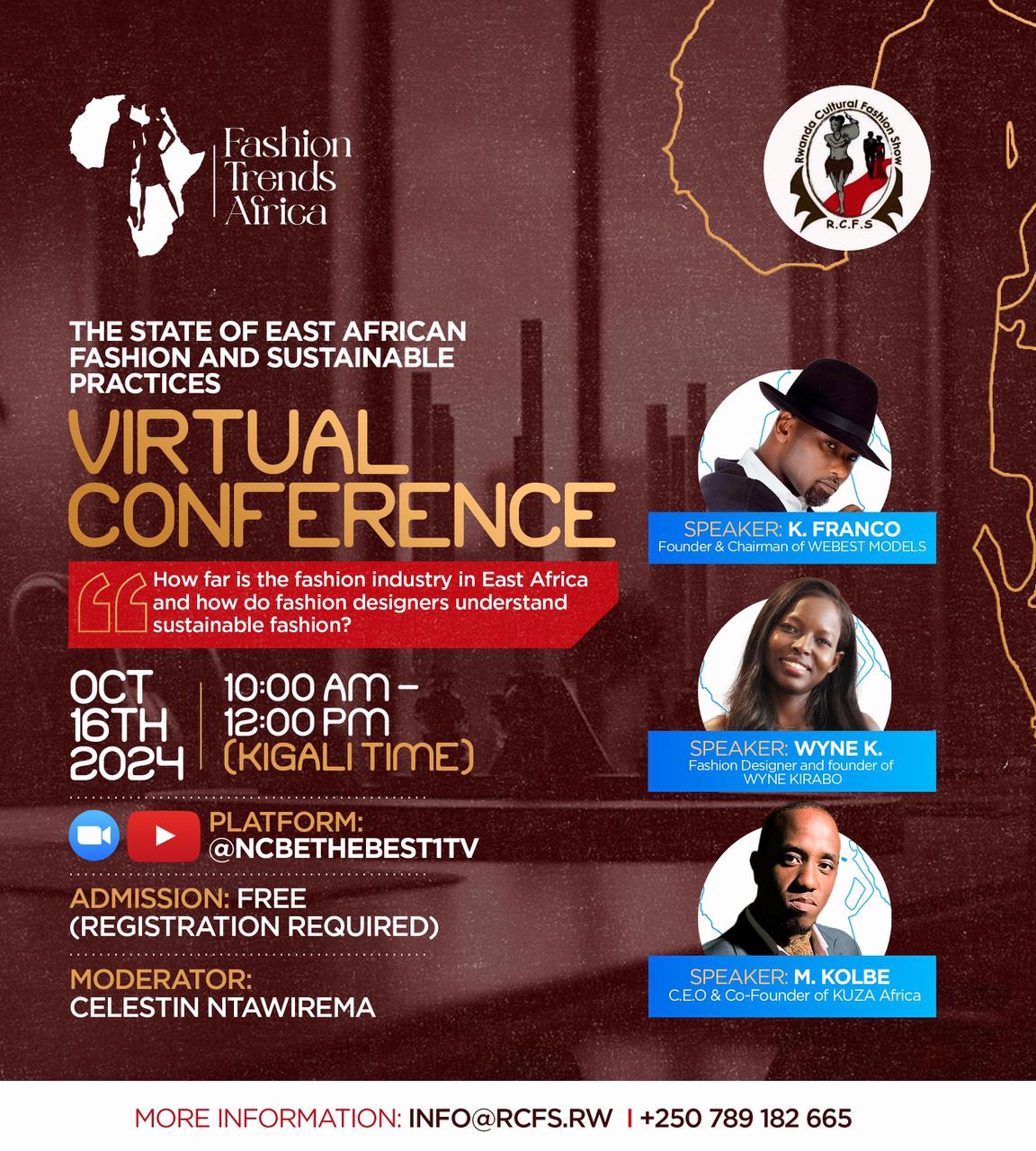




![Models on the runway in the recent event of the Kenya Fashion Story in Nairobi [Photo Credit: KFS]](/media/k2/items/cache/fc2062aef352f80dc2215f346ba9ce28_L.jpg)
![The collections made out of the recycled fabrics [Photo Credit: IG]](/media/k2/items/cache/9feeafa8e740fdbe632b43236148b194_L.jpg)
![In the photo models: Denyse Mushikiwabo, Isheja Morella, Anifa Umufite and Jennifer Girukwishaka [Photo credit: IG Models]](/media/k2/items/cache/6cdb4ac6ccf86fc9922b1b1ecf5faa0d_M.jpg)
![Ethiopian Workers inside a Clothing Factory [PHOTO NT]](/media/k2/items/cache/f9a9b7c9f33a923e5475b478a62125ae_M.jpg)
